Issoufou OUEDRAOGO
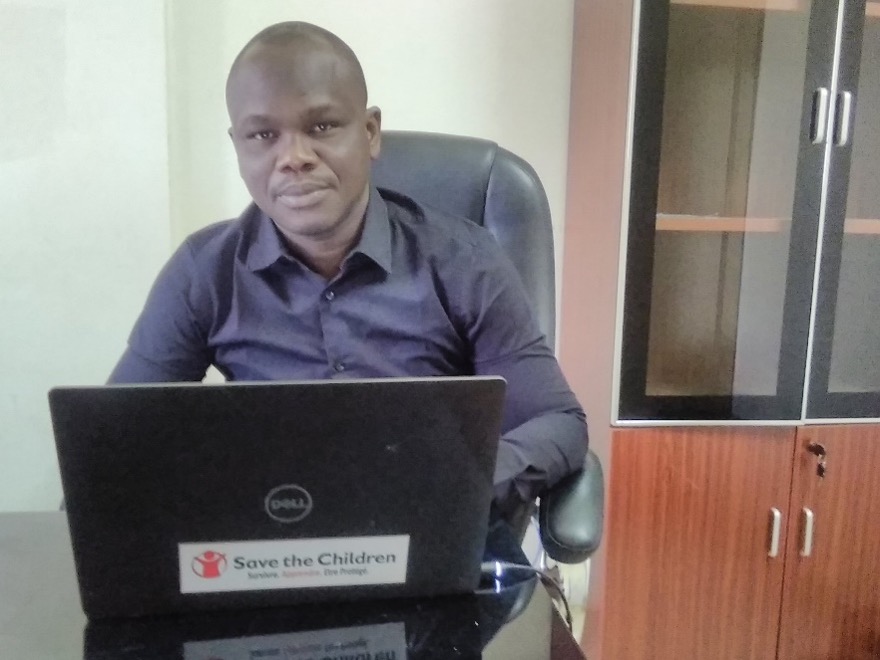
| Name |
Issoufou |
|---|---|
| Country | BURKINA FASO |
| Year / month of graduation | March 2019 |
| Degree obtained | M.A in international development and cooperation |
| Position / organization as of March 2021 |
Education specialist / Save the Children Burkina Faso |
This article was written in March 2021.
Why did you choose Japan, and Hiroshima university for your study?
I attended a 45-days professional co-creation program in Okinawa in 2015. During this training, we learned a lot about the history of Japan. I understood that Japanese economic development came from the quality of human resources. I tried to find out more about Japan’s performance in international tests (PISA, TIMSS etc.). I then realized that Japan was among the top performers in education. So as a professional of education, I was interested in studying in Japan. I started to gather information about studying in Japan. After talking to my trainers in Okinawa I learned that Hiroshima University was one of the best Universities in the field of education in Japan.
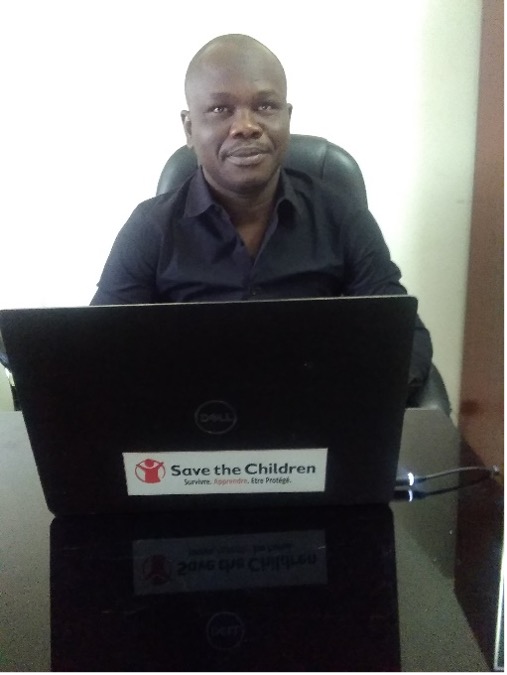
Then I applied through the ABE initiative program for Hiroshima University as first choice.
What did you learn and study at Hiroshima university?
I was in Hirakawa Sensei’s lab (former IDEC faculty), which was touching upon planning for international development. Basically, it was operating in the field of comparative education. Its research was mainly focusing determining the similarities and differences between the education systems of top performers from developed countries and developing countries. School dropouts, learning achievements and community participation were the main areas of interest of this lab. As far as I am concerned, I conducted research on school dropouts and achievements. To conduct these types of research, I have learned to conduct analyze data using SPSS and Hierarchical Linear Modeling (HLM). In course of my Master’s thesis, I conducted a multilevel analysis using HLM. My research was intitled: Factors influencing dropping out in primary education in Burkina Faso: a multilevel analysis. The aim of this study was to determine the determinants of school dropout in Burkina Faso in order to enable planners to take action. I learned how to disseminate research findings at international conferences. I also learned a lot about the process of writing, editing, and publishing articles in international journals.
Did you enjoy your stay in Hiroshima?
Apart from the few moments of nostalgia due to family separation, overall my stay in Hiroshima was very pleasant. At the university level, living in a so highly multicultural environment was a unique and very enriching experience for me. The administrative and pedagogical organization at IDEC allowed me to have a very pleasant and efficient academic experience. The most important element was certainly the pleasant moments I had with my host family. Indeed, this family has always found time to take me away from the stress of student life to discover the wonders of this beautiful country. I attended some cultural events (Kagura performance), Sight-seeing (Samurai Museum, Hiroshima peace memorial, Rabbit island etc.), Japanese gastronomy etc..
Please tell us your current work. Does what you learned or studied at Hiroshima university help you?
I am currently working with Save the Children International (SCI) as an education specialist to deploy some Education in Emergency programming in the crisis affected areas of Burkina Faso. It worth mentioning that, due to repeated attacks of some armed groups, the education system has been severely affected in 6 regions of Burkina Faso. As a result, many internally displaced children do not have access to, or are striving to access to basic education. SCI and many other humanitarian organizations are accompanying the MoE to respond the nutrition, protection and education needs of children and young people in these regions.
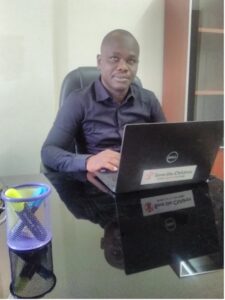
As part of the department of education, my role within SCI is to contribute to proposal writings, Plan SCI interventions in education in emergency context, support project staff, contribute to informed decision making, collect and analyze data etc. My studies in Hiroshima have sufficiently prepared me to take on these responsibilities. As a matter of facts, proposal writings are basically an evidence-based process, which supposes collecting and presenting data in a scientific and methodical way. Conducting research during my studies at Hiroshima University equipped me with the competences needed to assure this. In addition to this, as a specialist I provide strategical counselling to my line managers. For this this, I have to collect and analyze data to support decision making. In order to plan a better humanitarian response, we often conduct situational analysis which requires research skills. Finally, the courses on project cycle management ( YPPCIO Program) and project evaluation in education proved to be very helpful in that they provided me with the relevant background knowledge for an effective project cycle management .
Do you recommend Hiroshima university for others to choose?
Naturally I can’t wait recommending Hiroshima University as a first choice for any students I come accross. I sincerely believe that Hiroshima University is the place to be. Its particularity is that it offers an opportunity to dive in a multicultural environment. This is key in that it favors the setting up of a huge network of professionals coming from different horizons, backgrounds and specialties with a common ideal: international development. Hiroshima University, especially IDEC has a course syllabus which also promote a global expertise in an interdisciplinary vision. It is an innovative and futuristic vision that is in line with the new trends in resolving of social, economic and environmental issues: think globally and act locally.
Batsaikhan Javzandulam
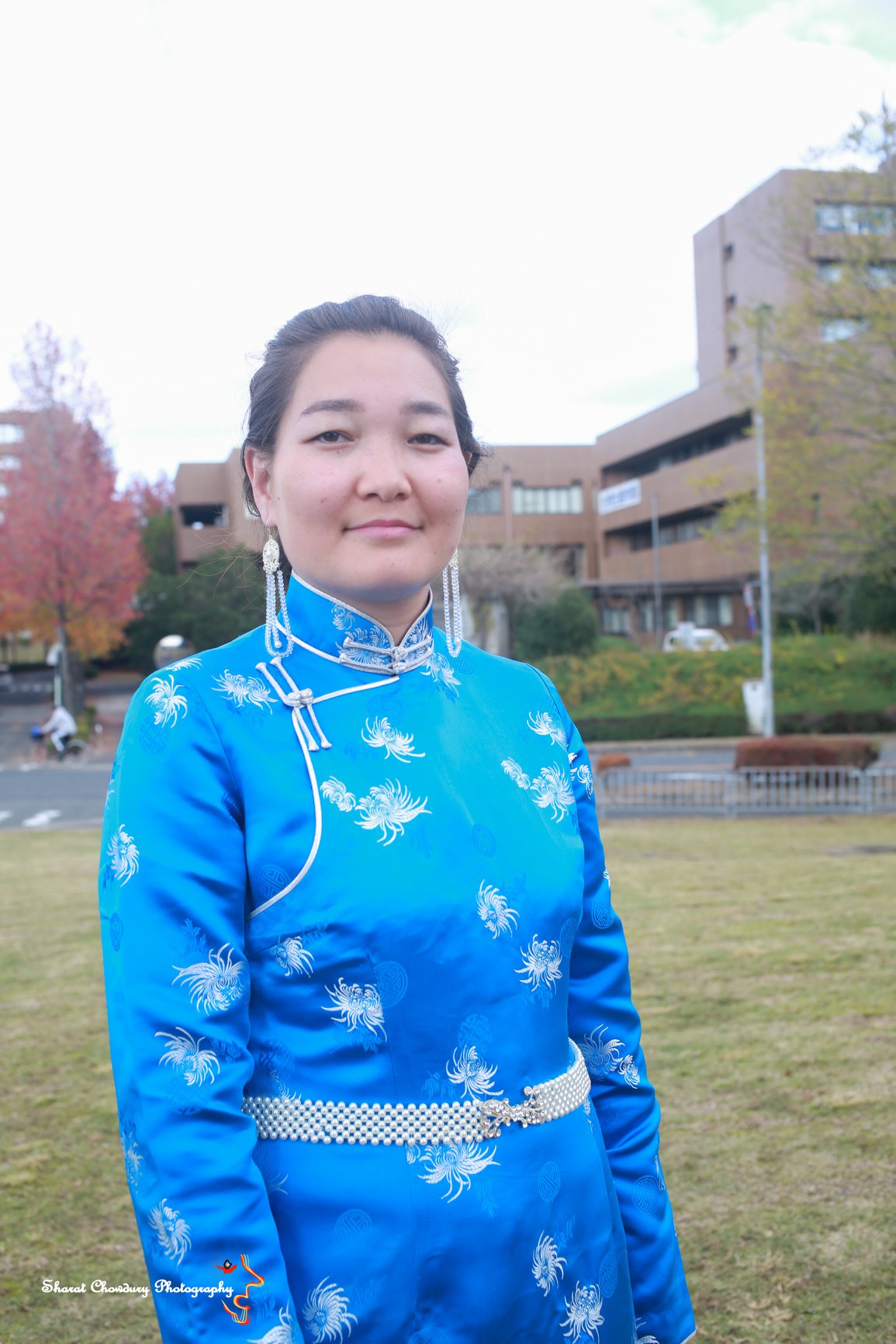
HU Campus
| Name | Batsaikhan Javzandulam |
|---|---|
| Country | Mongolia |
| Year / month of graduation | September 2020 |
| Degree obtained | Master’s Degree |
| Position / organization as of March 2021 |
Mongolian National University of Education / Lecturer |
This article was written in March 2021.
Why did you choose Japan, and Hiroshima university for your study?
Japan is unique by its culture and tradition that have been kept during this globalization era. People can experience Japanese food, tea, clothes, and many traditional celebrations and events. It is also one of the developed countries in the world that produces high-quality products such as electronic furniture, cars, and robots.
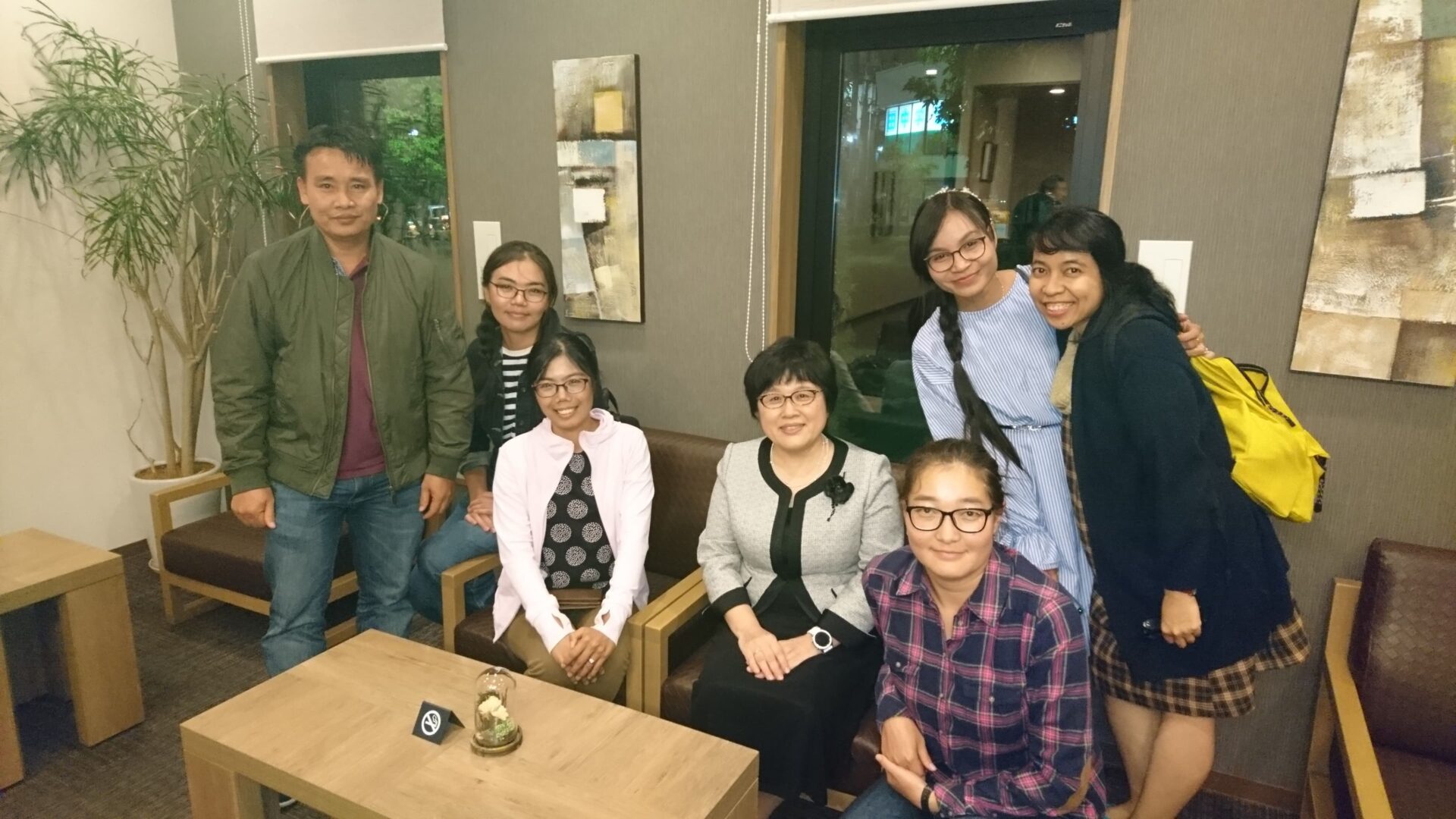
Route Inn Hotel
Japan amazes me with its many innovative things. One of them is a robot dog aibo that can function as a real pet. Hiroshima University has a higher rank among universities in the world. It is a prestigious university with the best learning environment of a beautiful campus where there are libraries, student support centers, sports clubs, and so on. There are meetings, events, and conferences with people from different parts of the world.
What did you learn and study at Hiroshima university?
By studying at Hiroshima University, I had the opportunity to have inspiring lectures by the professors and interesting conversations with peer students about global education issues. The courses that I chose gave me the opportunity to meet fellow students from many different countries and learn about their rich perspectives during the discussions.
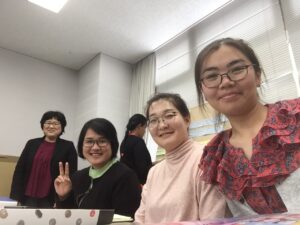
JICA Center
Through the weekly seminar meetings, I had the chance to study research methods, specifically mixed methods research and qualitative study approach, not only by reading the textbooks but by discussions initiated by critical questions.
My master’s thesis topic was “Herder Parents’ Belief Systems for Preparing Un-preschooled children for Schooling in Rural Mongolia: A qualitative case study” to investigate herder parents’ belief systems for preparing their children for schooling in the context of herder community. I studied literature related to education development policy in Mongolian and global contexts by conducting this qualitative case study. I gathered data in the field based on my research proposal, and I wrote the thesis in the scholarly way.
Did you enjoy your stay in Hiroshima?
The environment in Japan was almost opposite to Mongolia, where I grew up. It is an island country with warm climate conditions, yet Mongolia is landlocked, and it is one of the coldest places in the world. For me, it was beautiful to see flowers were blooming during the wintertime every day in Japan. Even the flowers were blooming on the trees. I enjoyed visiting historical places such as old factories of sake, Miyajima island, and Peace Memorial Park and learn about stories.
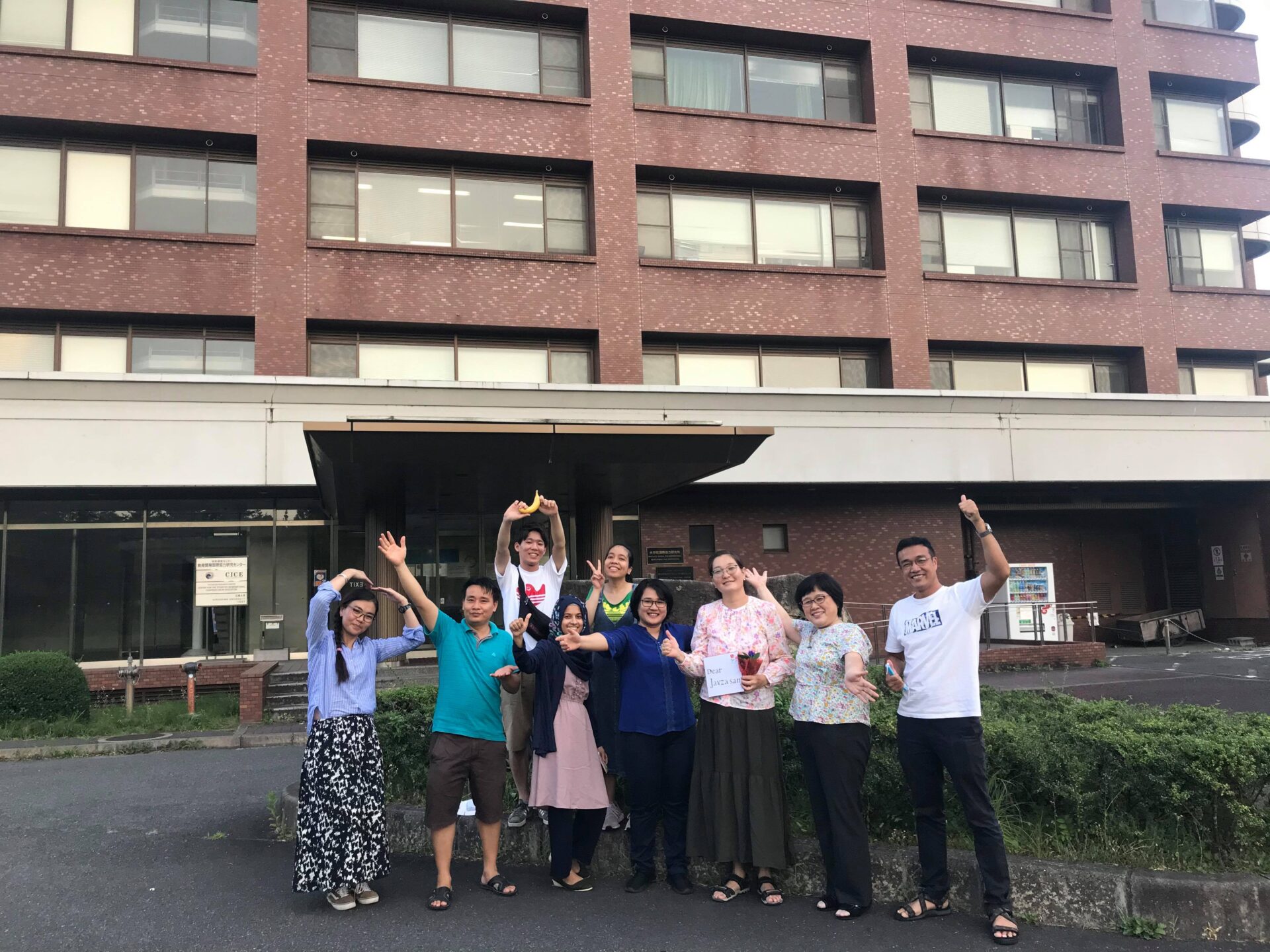
IDEC
I enjoyed riding a bicycle in Japan because I did not use to ride a bicycle in my home country. I was delighted to watch the beautiful natural environment every day on the way to the Hiroshima University Campus.
Please tell us your current work. Does what you learned or studied at Hiroshima university help you?
After I graduated from Hiroshima University, I continued working as a lecturer for the Mongolian National University of Education. My job responsibilities consist of three main components: Teaching, Publishing, and Service. I teach “Research Methodology” and “Action Research” courses for undergraduate students who will become preschool educators nationwide. For academic publishing, I collaborate with my colleagues on research projects. Any activities that are focused on supporting students’ learning can be considered as service. I have been volunteered to organize the “Student Researcher” club at my university that consists of students who are interested in doing research. Once a week, we meet and share about what we are doing on our research and what new thing learned. All my work at the university is related to research and academic publishing. The study at Hiroshima University was a huge contribution to my professional development as an educator and a researcher.
Participating in international research conferences and publishing my article in a research journal based on my study at Hiroshima University gave me the opportunity to present my study and to communicate with scholars in global contexts. My experiences at Hiroshima University leveled up my academic writing skills, and I can support my students’ research same way.
I would like to express my sincere gratitude to Professors Miwa Chiaki, Nakaya Ayami, and Maki Takayoshi for giving me valuable comments and suggestions for the improvement of my study. I appreciate Monbukagakusho (MEXT) scholarship for selecting me, investing in me, and entrusting me. I understand this investment is for the Mongolian Early Childhood Education field’s future development through my study and work.
Do you recommend Hiroshima university for others to choose?
There are three main reasons why I recommend Hiroshima university for others to choose. First, I was privileged to have academically highly qualified professors who were supportive throughout the program. I used to receive detailed feedback on each of my presentations and paper submissions that were very helpful to improve my academic skills. Second, I had opportunities to have meetings and discussions with fellow students who have various experiences in education field in different country context. I learnt a lot from other students and many of them are now my friends. Lastly, Hiroshima university is a convenient place for studying. Beside peaceful and comfortable learning environment in the campus, living condition is cozy in Hiroshima. I loved Japanese food because it has the best taste and quality.
HENG Kreng
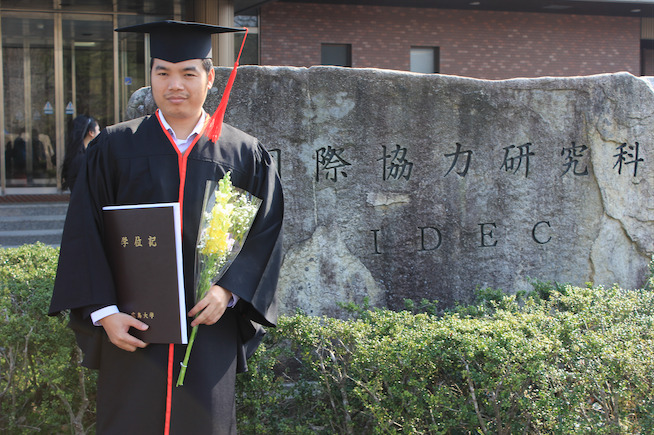
| Name | HENG Kreng |
|---|---|
| Country | Cambodia |
| Year / month of graduation | March 2014 |
| Degree obtained | PhD in Educational Development |
| Position / organization as of March 2021 |
Director, Department of Scientific Research, Ministry of Education, Youth and Sport |
This article was written in March 2021.
Why did you choose Japan, and Hiroshima university for your study?
One major reason I chose Japan is due to its outstanding economic and education development. The rapid development in Japan developed my interest to study the development strategies Japan had employed so far following the 2nd world war. Another reason is its geographical proximity to Cambodia. It is easy to travel and I still have a sense of being at home and in the Asian soil while studying abroad.
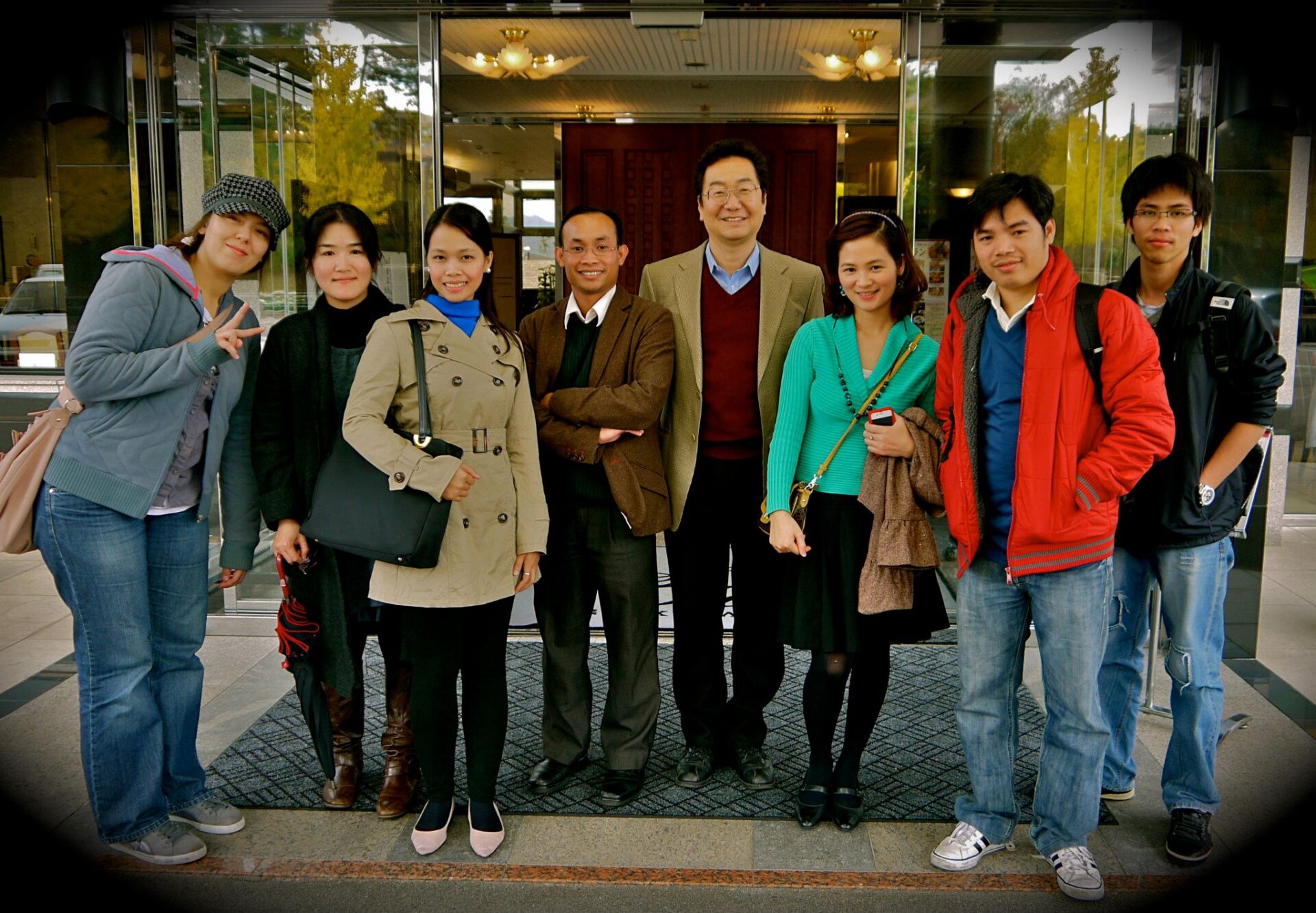
In addition, Japan has been a good friend to Cambodia in many respects especially in terms of support to socio-economic development in Cambodia. Hiroshima University was the first choice in my selection list due to its long history of education and training. HU offers a wide range of international programs in education and research. Also, HU is located in an environment conducive to learning and living. What I like the most is the green campus and clean, suburban city of Higashi-Hiroshima.
What did you learn and study at Hiroshima university?
During the study at Hiroshima University, I have learnt a great deal of useful and relevant contents and skills including, but not limited to, educational planning, education policies and best practices of education reforms and internationalization across the developing and developed worlds. HU provides an excellent model of a research-based education program which requires all students to conduct research and write a thesis.
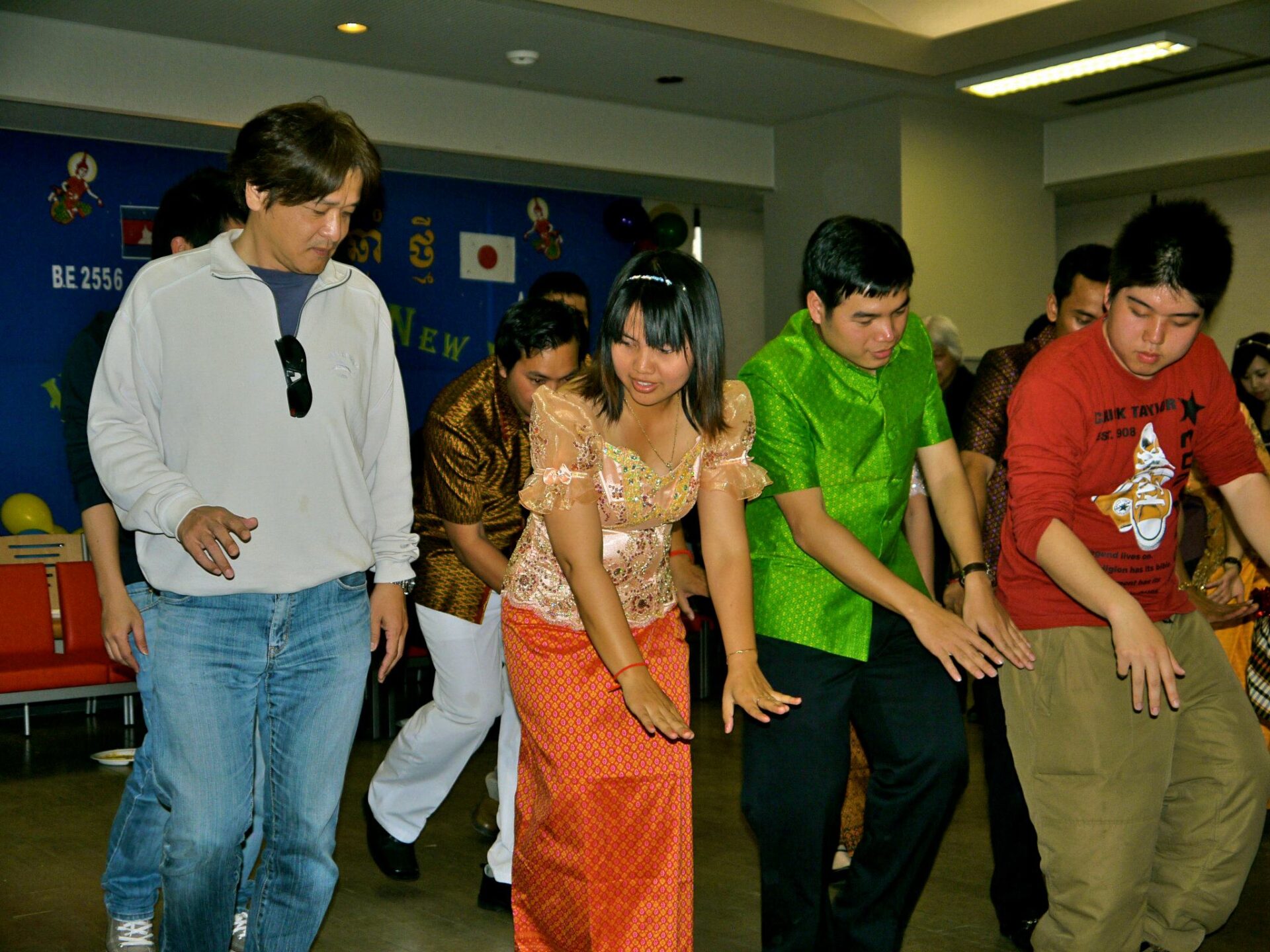
Through this program, I could identify the area of specialization. The topics of my master’s and doctoral theses are related to the assessment of student learning and its related factors. The research-intensive master’s and doctoral programs at HU have strengthened my research competence greatly, upon which I could become one of the outstanding researchers and consultants in education policies, student assessment and project evaluation.
Did you enjoy your stay in Hiroshima?
I enjoyed both study and social life there. The best experience in Hiroshima was the academic freedom given by my supervisor. With his support and freedom given to all students, we could identify our own strength and successfully completed our degrees with high confidence. The stay in Saijo was also fantastic.
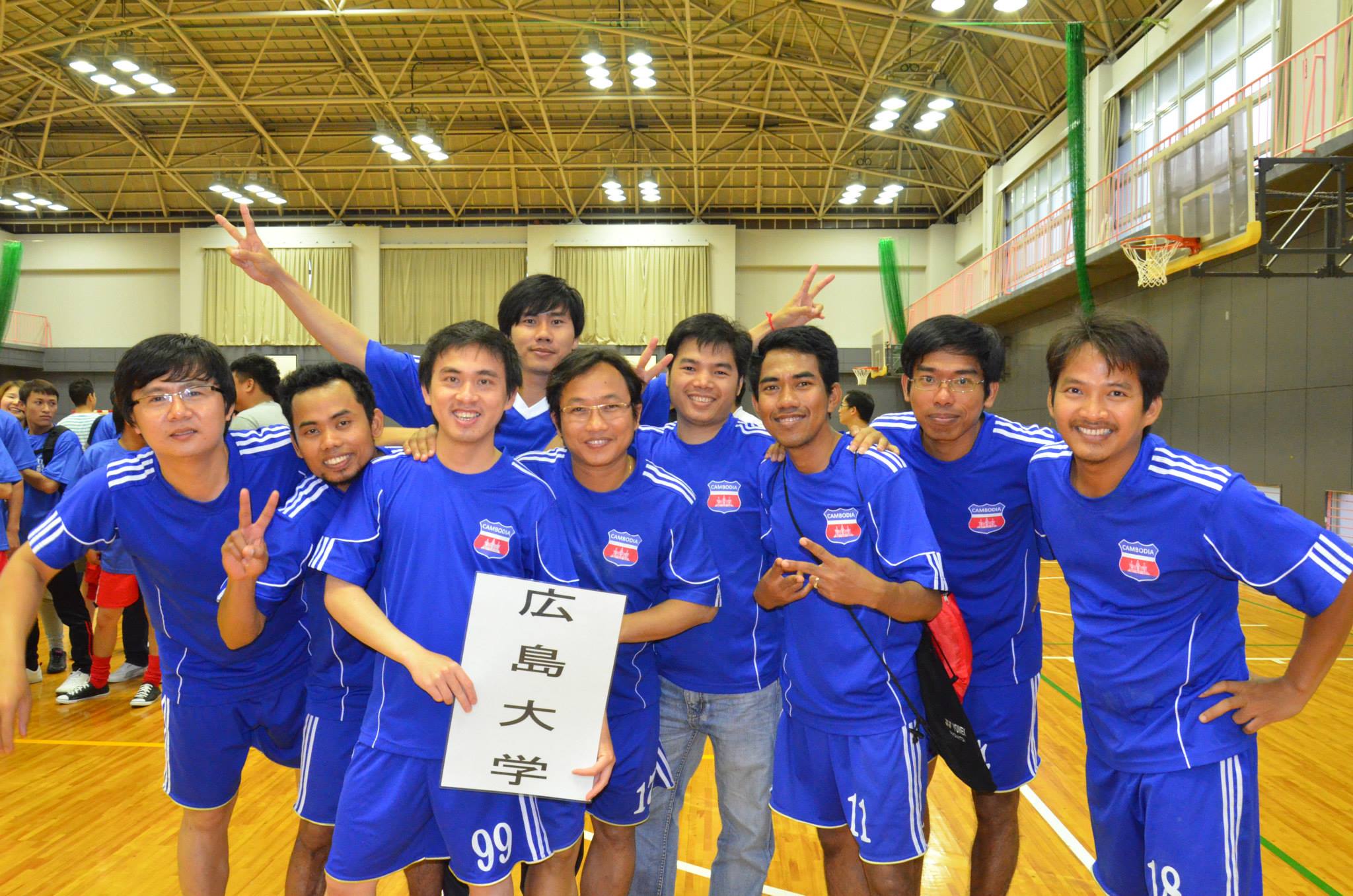
HU is close to shopping centers, restaurants and sport centers. Given the small city of Higashi-Hiroshima, we could explore the city with ease. Also, there are many attraction sites and festivals in Hiroshima. All of these made my study life more enjoyable.
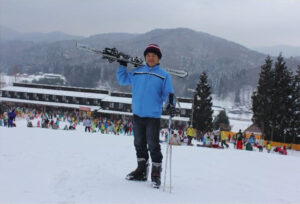
Please tell us your current work. Does what you learned or studied at Hiroshima university help you?
Currently, I am a director of the Department of Scientific Research, Ministry of Education, Youth and Sport of Cambodia. The work is closely linked to the research expertise I have gained from my study and some years of experience as the education researcher and consultant.
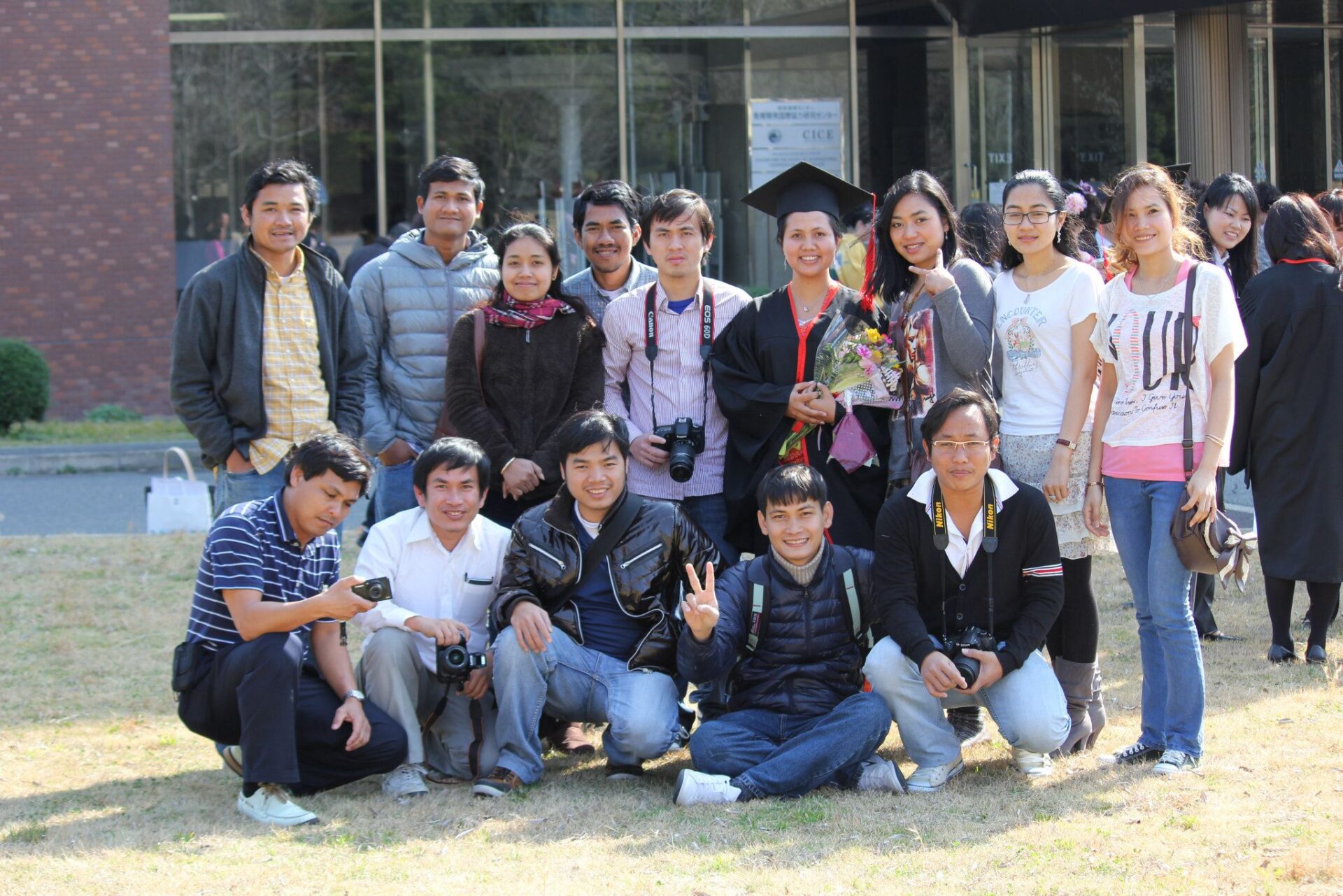
My main tasks are to promote research at Cambodian higher education institutions; to improve the quality of postgraduate programs, and to promote a linkage of STEM education between secondary education and higher education. Meanwhile, I am supporting the higher education sub-sector to formulate policies and strategies to guide universities in Cambodia to strengthen governance, education programs and quality assurance.
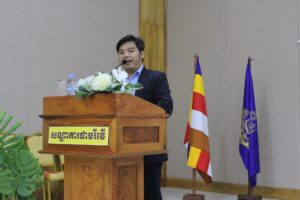
A number of tasks achieved or ongoing include a 10-year higher education strategy, new Research and Development Policy for the higher education sector, setting up research fund to universities, guideline to center of excellence, journal standards, guideline to tracer study, human resource development mater plan, guideline to student grievance, and internal quality assurance manual. The policy analysis experiences and research skills gained from HU provides me with great potential in completing difficult or new tasks with high confidence.
Do you recommend Hiroshima university for others to choose?
HU is a great place for study. If you wish to improve education policy analysis and research skills, I strongly recommend HU. Professors and supporting staff there are helpful and caring about students’ academic and social life. The facilities are sufficient to enrich student experiences. So are student services. HU provides more than a place to study but a place to enjoy social events as well.
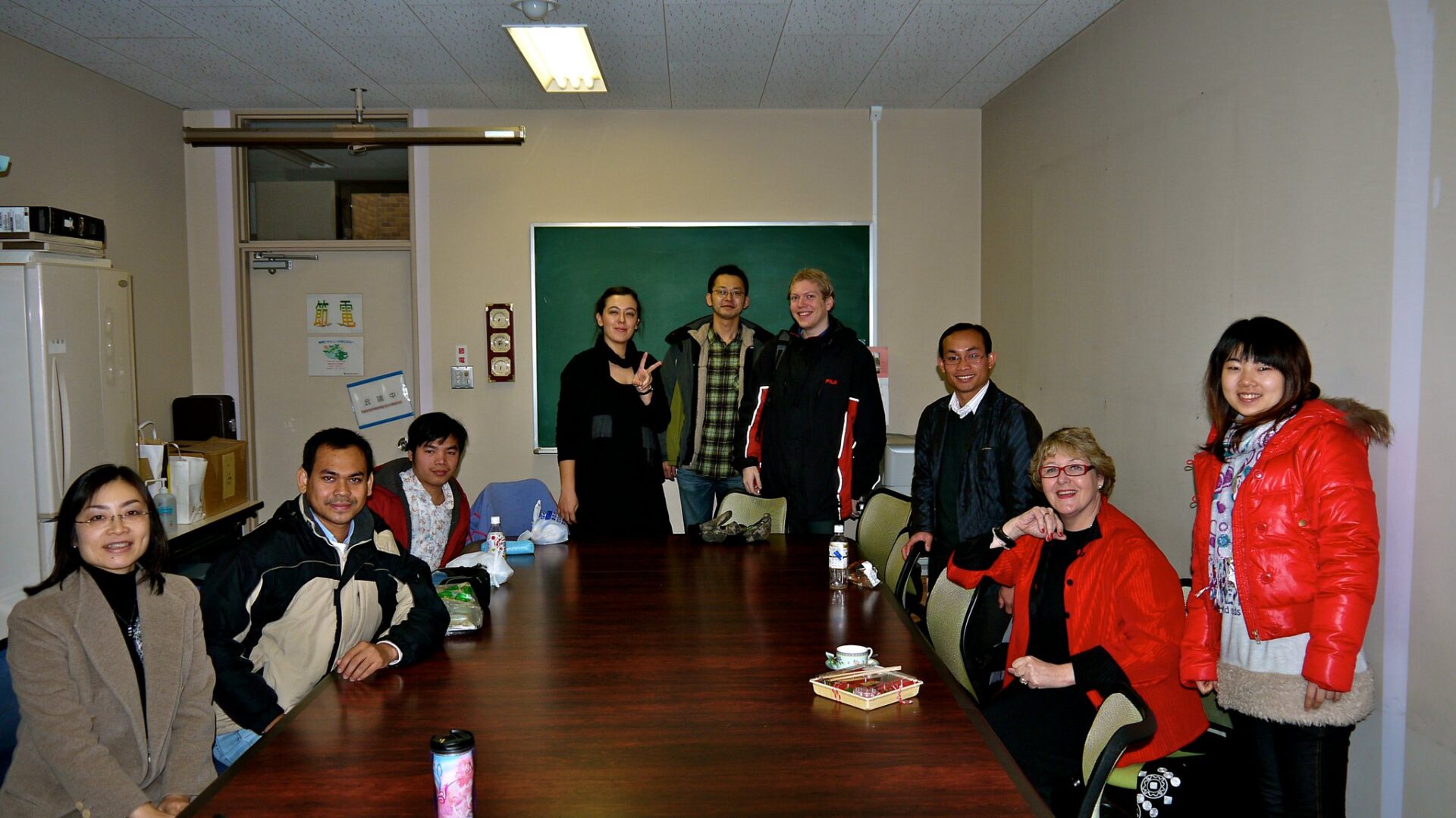
MEUNVISETH YOMMALA
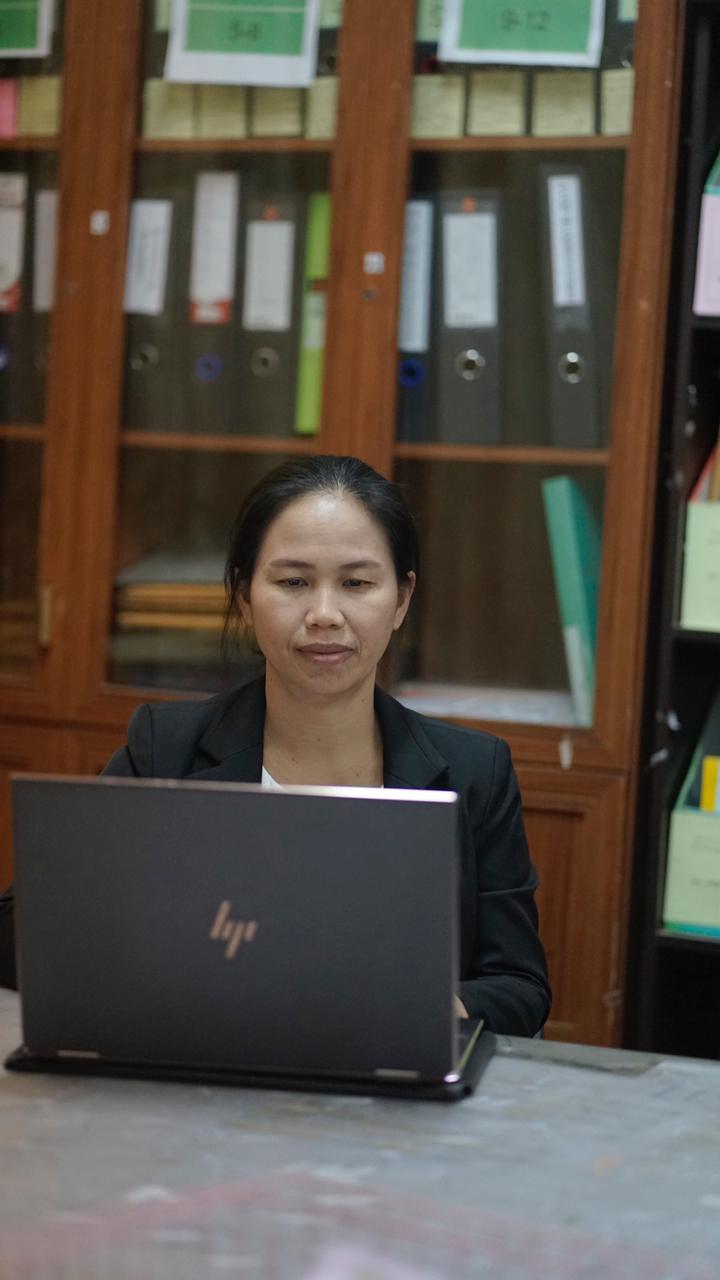
Taken when I worked at my office
| Name | MEUNVISETH YOMMALA |
|---|---|
| Country | Laos |
| Year / month of graduation |
September 2020 |
| Degree obtained | Master of Education |
| Position / organization as of March 2021 |
Deputy of Curriculum Design and Development Unit, and Deputy of Writing subject Unit |
This article was written in March 2021.
Why did you choose Japan, and Hiroshima university for your study?
There were many reasons of choosing Hiroshima University, Japan for my study. The most important reason is that the curriculum provided matches with the needs of international students. It means that there are many courses that students can choose to enroll for their study, and it has the Student Plaza Center to support students whenever they face difficulties in their studying life.
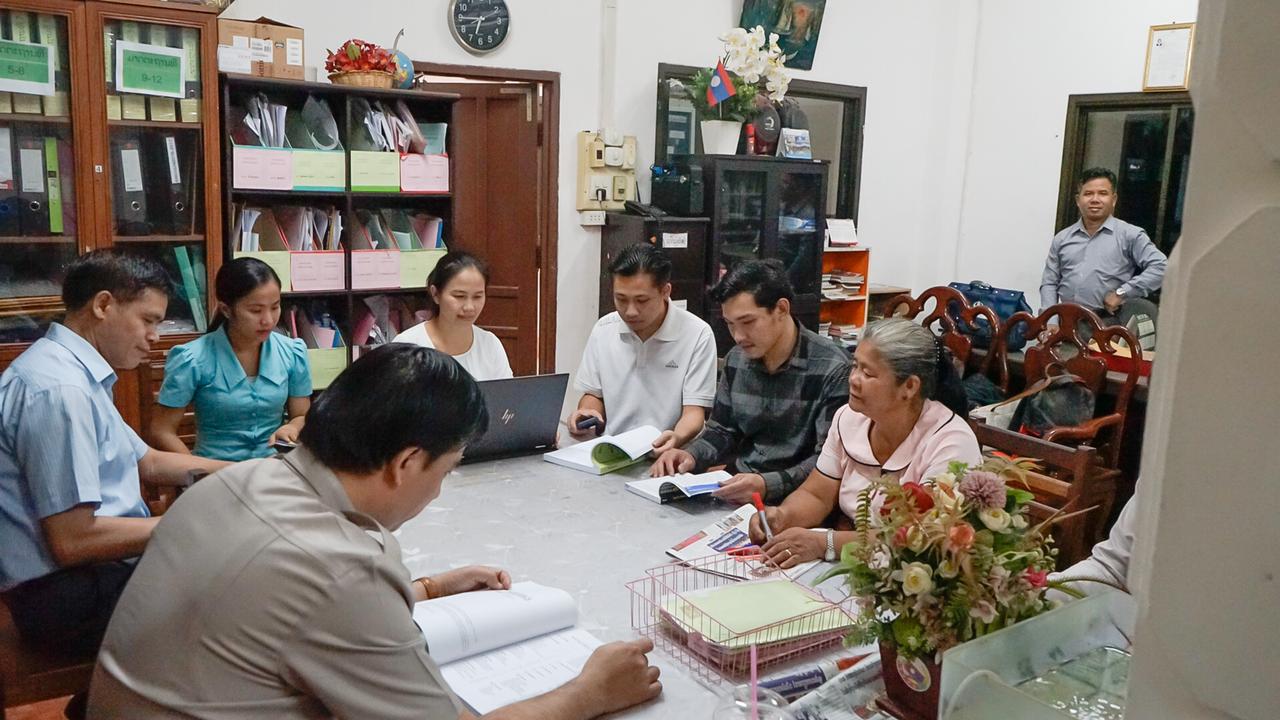 During workshop
During workshopAnother important reason is that the lecturers have high standard of educational qualification, and they have a lot of experience on research and good supports for students. Moreover, a multicultural class has caught my attention to select Hiroshima University, since I can exchange my experience and ideas with diverse people. Moreover, I am able to exchange cultures with local people and international students. Finally, there are various scholarships to support international students.
What did you learn and study at Hiroshima university?
There were a lot of things that I gained from Hiroshima University. First, I gained in deep understanding and insight about how to conduct a research; especially, my research topic “Perception of Inclusive Education in Higher Education in Laos: A Case of Students with Visual Disabilities, Students without Disabilities, and Teachers of Inclusive Classes”.
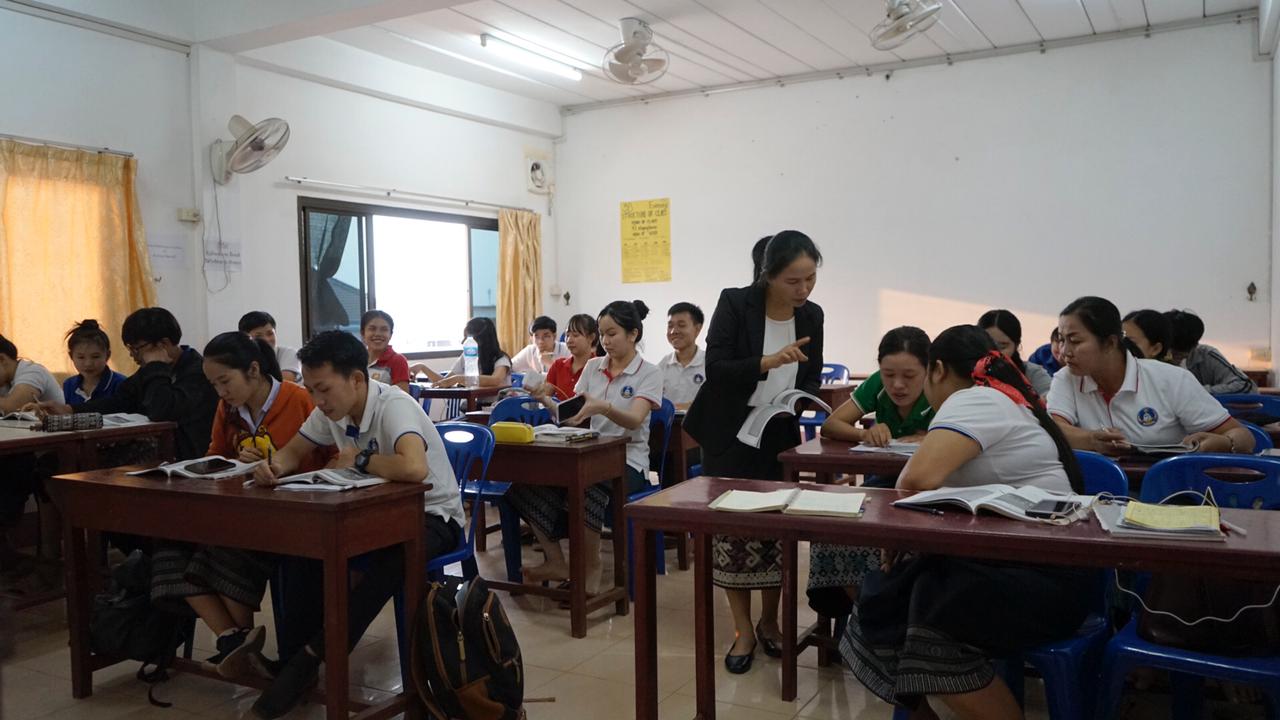
Taken when I was teaching students in the classroom
Also, I had more chances to do field works outside the university. Besides, I had good opportunity to participate in various conferences; for example, presenting my research topic in Cambodia funded by the PEACE Student Exchange Program and attending a conference in Tsukuba University. Furthermore, I had a good opportunity to join Hiroshima Global Academy school as facilitator in opening new school, and it was very exciting experience for me to be in a Japanese high school for the first time interacting with polite and courageous students for two days in HIGA. Many thanks to all HIGA team for their warm hospitality and caring on Osaki-Kamijima Island. My stay in HIGA could not have been very comfortable due to unfamiliar environment, but the HIGA people’s care, kindness and services really made me feel at home. I also participated in Hiroshima Prefectural Hiroshima High School’ activities, which helped me gain more knowledge and experience.
Did you enjoy your stay in Hiroshima?
I am pretty sure that I had golden opportunities to live in Hiroshima, since I could spend my time with Japanese people, which was able to deepen my understanding of Japanese people’s life style and cultures. Also, I had a wonderful time to experience the cherry blossom with both Japanese and international students, which was really good for us to exchange our cultures.
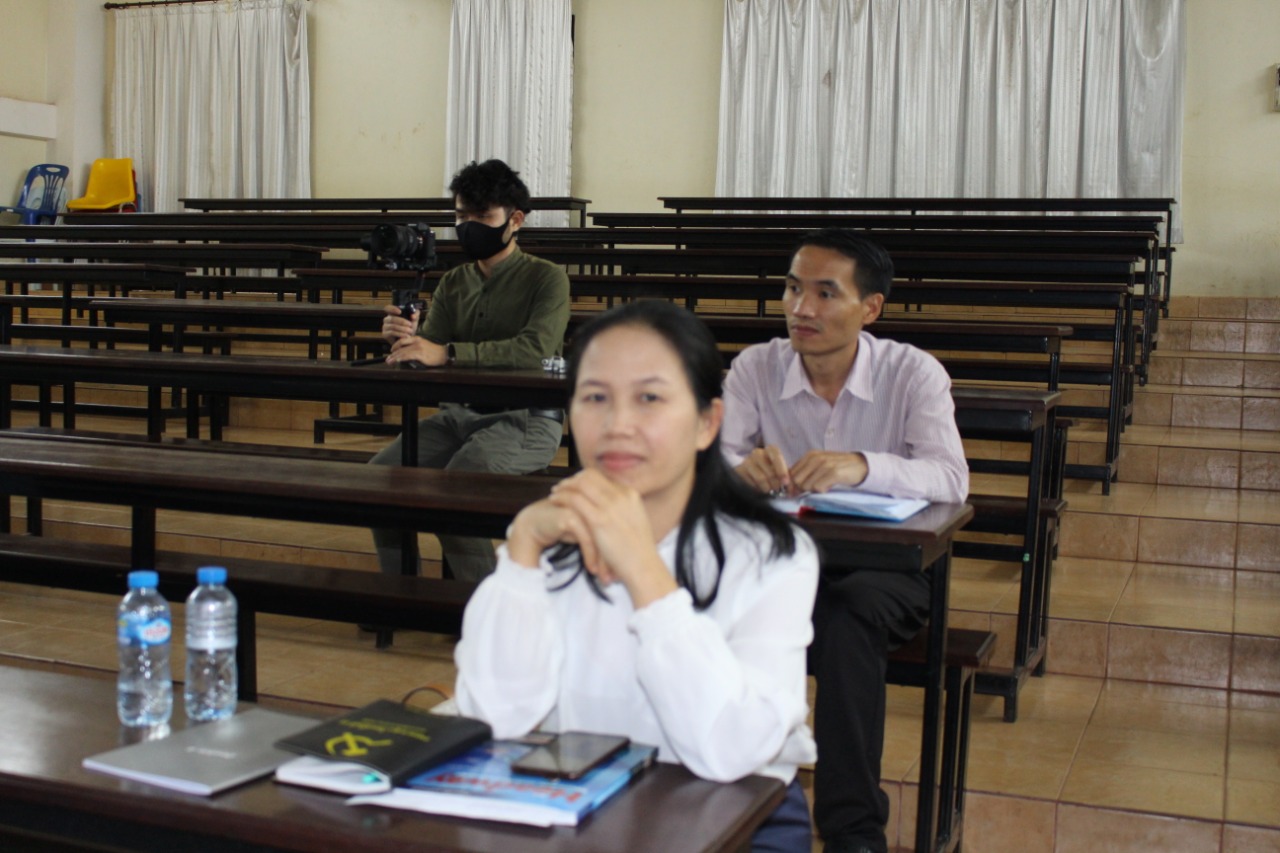
Taken when I attended the conference of Raising people awareness of Inclusive Education in higher education
In addition, I had a good opportunity to visit Miyajima to see the floating torii gate, and there were so many activities that people were able to see and do; especially, hiking, seeing forest trails, visiting temples, shopping on streets and seeing beautiful aquarium. Moreover, living in Hiroshima was not too difficult although I did not understand much Japanese, since there was a communication corner for international students to have a consultation to deal with difficulties of life in Sun Square, where there were good quality staff waiting to serve and support international students and so were there in the City Hall. I was heartfelt when I was received good help to translate document and process my paperwork there, where I think I will never receive such a good service elsewhere in the world. Furthermore, living there (in Hiroshima) was not so lonely because the Hiroshima University held many activities; especially, university’s festivals, camping, sports events, and visiting famous interesting tourist sites. Those events were able to help the international student like me to explore new experience beside outside class.
Please tell us your current work. Does what you learned or studied at Hiroshima university help you?
The skills that I obtained from Hiroshima university are very useful and meaningful to my job. For instance, I have more opportunity to conduct research related to inclusive education in primary and secondary schools in Laos for the next couple years, this is because, the findings are important evidences for educational policy-makers in order to support or help students with disabilities to learn effectively in inclusive education.
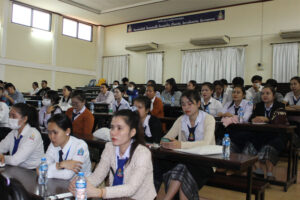
In the conference that related to raising students awareness of disabled students’ right in studying in higher education
Furthermore, stakeholders can then provide course contents and educational experiences that will help teachers to develop the knowledge and dispositions they need to be successful teachers for all students. Moreover, I am going to conduct research related to factors influencing students’ low English achievement in four main universities in Laos. Moreover, I have more chances to be a part of the curriculum design and development of the Department of English Language, Faculty of Letters. My main responsibility is to evaluate curriculum, edit or develop text books, organize professional development workshop to teachers at my workplace. Furthermore, I have a golden opportunity to be a trainer to train students in Asian Foundation program. This task is very challenging for me, but the skills that I gained from Japan can help me work effectively with my colleagues and students. In addition, the results from my research topic provides deeper insights into the core problems or factors of inclusive education at the National University of Laos. This is beneficial for decision-makers, administrators, staff, and other stakeholders to improve inclusive education. Also, it can assist students with and without disabilities, as well as teachers of inclusive classes.
Do you recommend Hiroshima university for others to choose?
Of course, I will do, since there are lots of benefits to study in Hiroshima University. Students can study here in a comfortable friendly environment and have high satisfaction for their life. This is because, its peaceful environment of the university makes it an ideal place to study. Also, it is very easy to access to the faculty library and the university central library, where students can collect updated books and articles. It also provides a wonderful opportunity for foreign students to learn and develop their research skills with the benefit of excellent facilities in a soothing environment. The university provides various courses/fields to match with the needs of students and study under distinguished qualified lecturers.
MOUSUMI Manjuma Akhtar
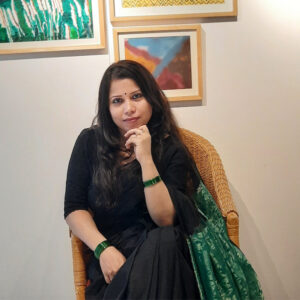
| Name | MOUSUMI Manjuma Akhtar |
|---|---|
| Country | Bangladesh |
| Year / month of graduation | September 2017 |
| Degree obtained | Ph.D |
| Position / organization as of March 2021 |
Assistant Professor, BRAC Institute of Educational Development (BRAC IED), BRAC University |
This article was written in March 2021.
Why did you choose Japan, and Hiroshima university for your study?
The MEXT scholarship has played a pivotal role in selecting a Japanese university. I have learnt a lot about education and development, and Japan’s role in addressing gaps in developing countries through the Master’s programme and Doctoral study at Hiroshima University. The university has played a critical role in constructing knowledge and understanding about research. Japanese culture has also played a significant role in selecting a Japanese university. It is a promising country with desirable characteristics for conducting research and have the potential towards contributing strong lessons. Overall, it has been an amazing journey and a rich experience.
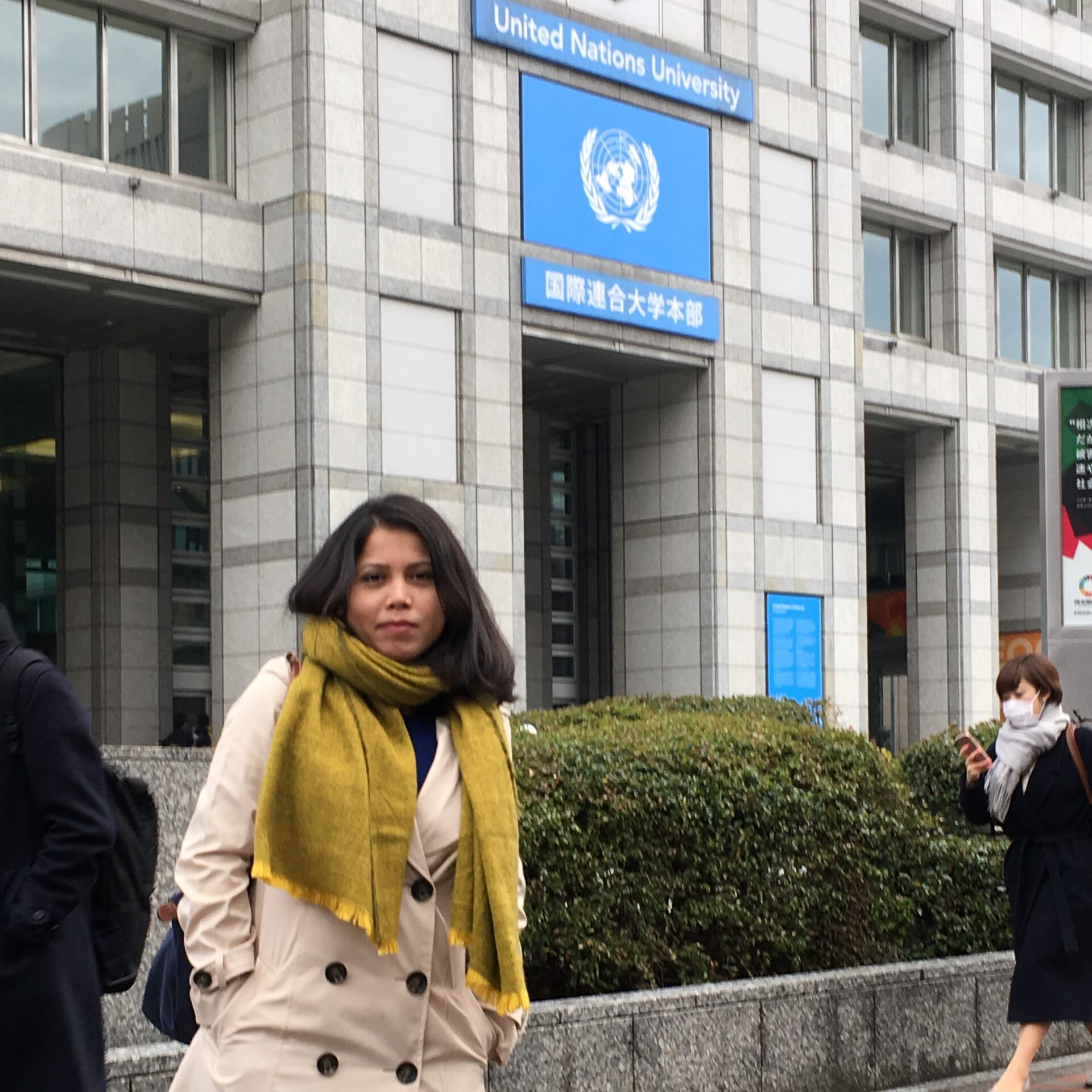
What did you learn and study at Hiroshima university?
There were always insightful discussions surrounding topics educational development. I enjoyed learning about Development theories, Comparative education, International cooperation in education, International relations, Peacebuilding education, etc. These courses have contributed in shaping my understanding on diverse educational issues of global south countries. Through these courses, I am also able to reflect critically on my own understanding on issues of concerns.
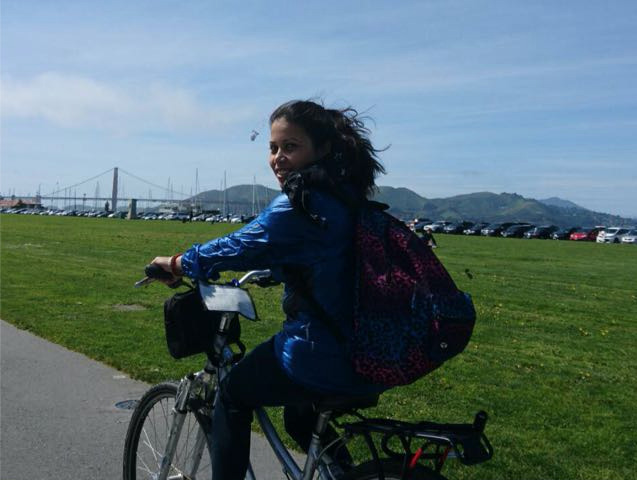
With the help of faculty members and intensive supervision, I have been able to learn a lot on education and development, and gain supportive experiences. Both my Master’s and Doctoral study focused on issues related to school choice. In Ph.D. I worked on school choice issues in India and Bangladesh.
Did you enjoy your stay in Hiroshima?
I have spent some great years at Hiroshima. I highly admire Japanese art, culture and tradition. For instance, Kintsugi-Japanese practice that beautifies broken pottery; Wabi-Sabi-embracing imperfections; Daruma dolls-representing resilience and many more to talk about. These are integral to life and how one looks at life. Every spring I used to look forward to ‘Hanami’. I believe, it’s one of the best festivals that I have ever experienced. Hiroshima carries a very positive environment where one gets to discover ‘Ikigai’. I had some exciting and unforgettable moments during my stay in Hiroshima.
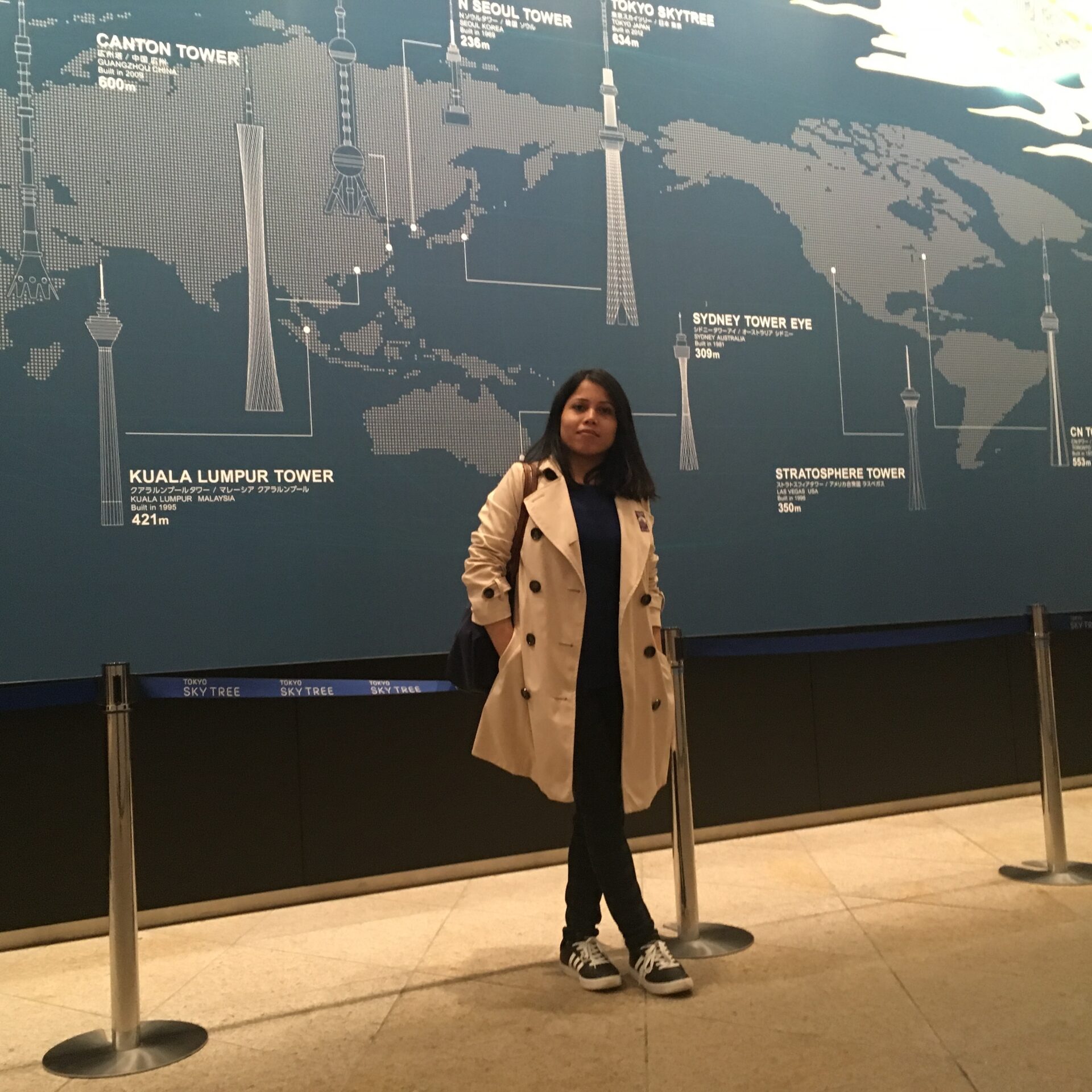
Please tell us your current work. Does what you learned or studied at Hiroshima university help you?
Role at BRAC IED, BRAC University:
I am an Assistant Professor and Head of Academics at BRAC Institute of Educational Development (BRAC IED), BRAC University, Dhaka Bangladesh. I mainly teach the Master of Education/Post-Graduate Diploma in Educational Leadership & School Improvement. In addition, I also teach the Master of Science/Post Graduate Diploma in Early Childhood Development programme; Professional Development Centre’s course and short courses on play. At the institute, I have been involved in numerous donors funded projects in different capacities. My research interests include: market forces, social equity, educational development, and issues related to school choice in India and Bangladesh.
Experiences gained during the Master’s programme and doctoral studies and my involvement in donor funded research projects at CICE have helped me to understand about various practices in different contexts. Both the programmes and research projects have provided me with quality experience. The research projects that I was involved (and continue to involve) in have helped me enormously to publish in Q1 journals. Study labs at the institute forged great learnings as we were provided opportunities for cooperation and collaboration. These labs created space and conditions for us to thrive.
Do you recommend Hiroshima university for others to choose?
Hiroshima University allowed me to interact with academic community and gain knowledge on cutting-edge issues of concerns such as ‘social equity’ and ‘social justice’ and many more which, helped me to contribute in academia substantially. It allowed to me expand my academic network, collaborate and introduce my work to leading scholars. It allowed me to attend valuable educational sessions that have (possibly) broaden my knowledge. Also knowledge gained from several sessions helped me to understand global educational development priorities. Therefore, I believe others looking for these experiences can definitely explore Hiroshima university.
Nguyen Thi Ngoc Lien
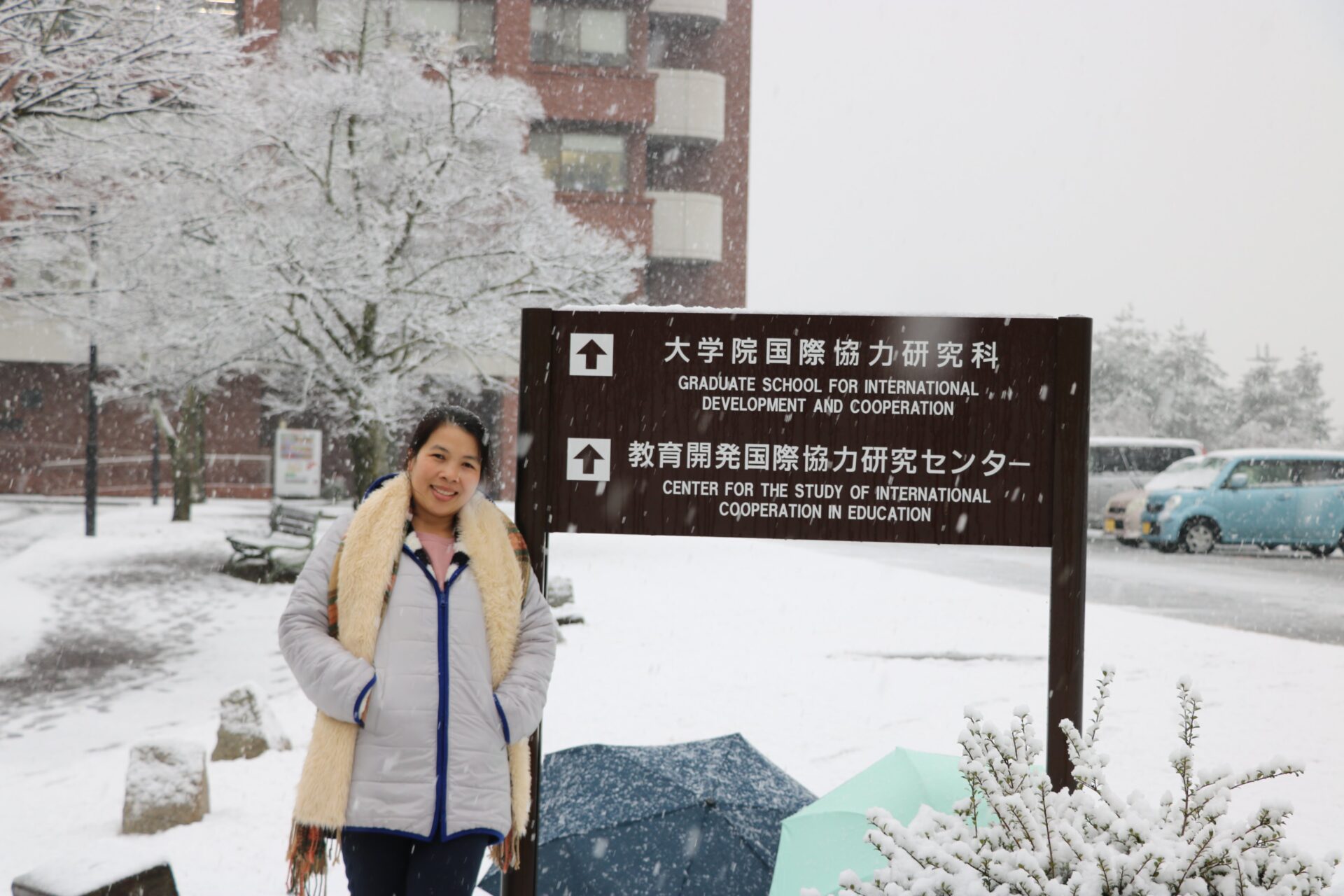 Winter 2018
Winter 2018| Name | Nguyen Thi Ngoc Lien |
|---|---|
| Country | Vietnam |
| Year / month of graduation | September 2019 |
| Degree obtained | Master |
| Position / organization as of March 2021 |
Officer / Can Tho University |
This article was written in March 2021.
Why did you choose Japan, and Hiroshima university for your study?
I have studied to improve my qualifications in Japan within the framework of the project “CTU Improvement” using ODA loans of Japanese Government. The ODA loan project aims to upgrade CTU to be an excellent and internationally recognized institution of education, scientific research, technology transfer, and governance. The goal of the project is to support Can Tho University to develop into an excellent university in the fields of agriculture, fisheries and the environment.
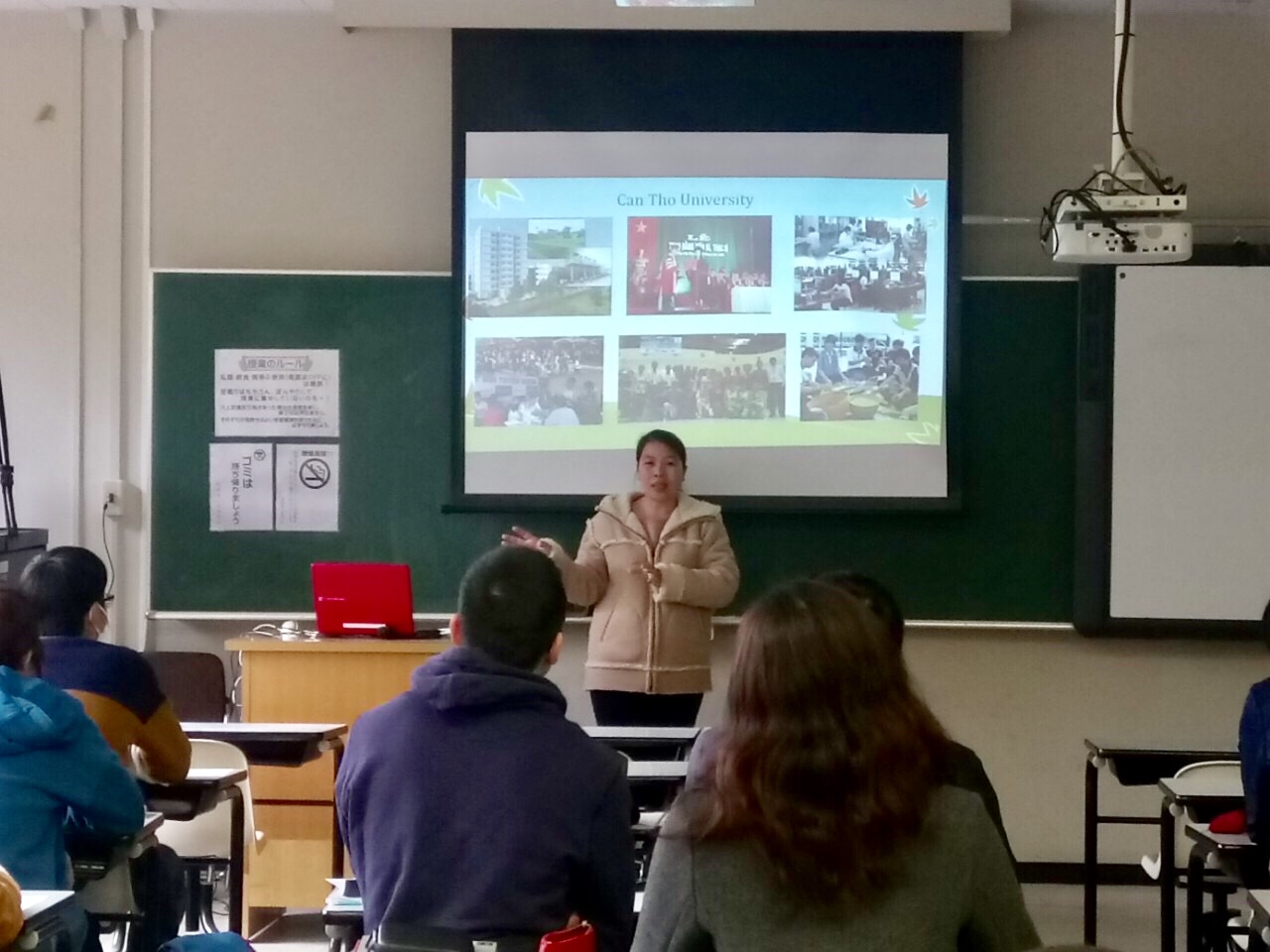
To achieve this goal, besides upgrading the construction of facilities, it is most important to prepare quality staff to meet the requirements in the new context. Therefore, I was selected to be a candidate for studying in Japan.
What did you learn and study at Hiroshima university?
I studied on the topic “Professional Development toward Internationalization of higher education: Perspectives of Administrators at Can Tho University”. Although many research showed the significance of professional development for staff and the requirement all staff for engagement in order to better contribute to organizational goals, professional development for administrators, specifically professional development toward internationalization seems to be lacking at colleges worldwide. Accompanying with my study is Maki-Sensei as well as my lab mates. It can be said that I feel too lucky to have become a member of Maki-Sensei’s lab (Lab 703). The most impression on me is the prolong but meaningful seminars from 10:00 am to 10:00 pm. Thanks to that, I have obtained not only the theory but also successfully implemented my research topic. In addition, during studying at IDEC, I found the similarity between IDEC’s current working environment and the one that Can Tho University toward to in the context of internationalization.
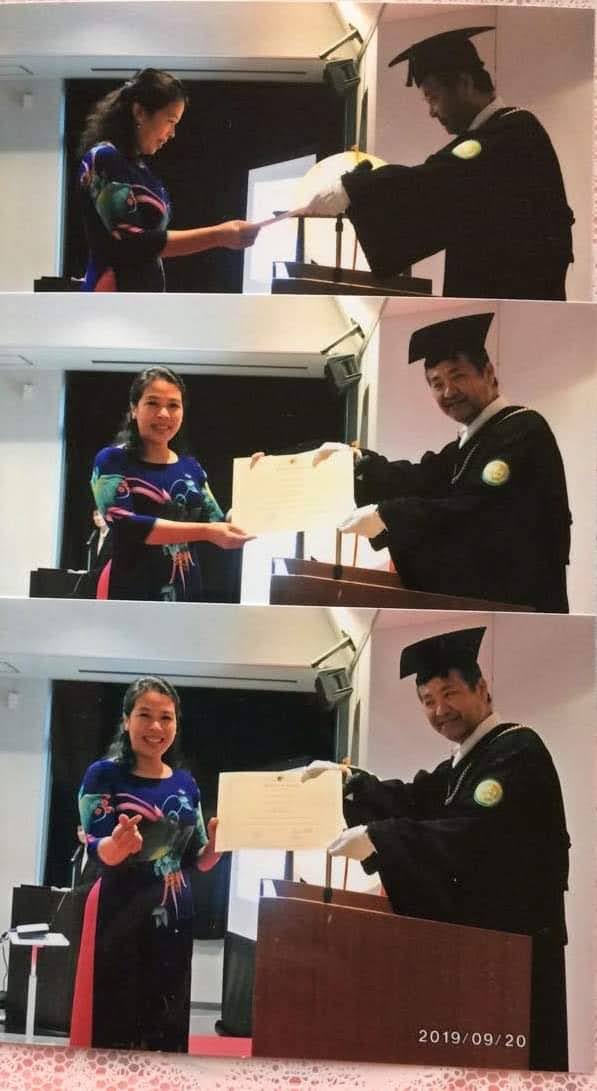
Therefore, with the approval of the IDEC’s Dean as well as thanks to the support of Maki-Sensei, I have got the opportunity to learn practical managed experiences from IDEC’s officers in supporting the international students.
Did you enjoy your stay in Hiroshima?
The answer is Yes, of course. During 2 years living in Japan, despite the differences in language and culture, I have generally experienced many memorable memories. The most difference between Japan and Vietnam in general, especially in my hometown is about the weather. The first experience of snowfall made me both nervous but interesting.
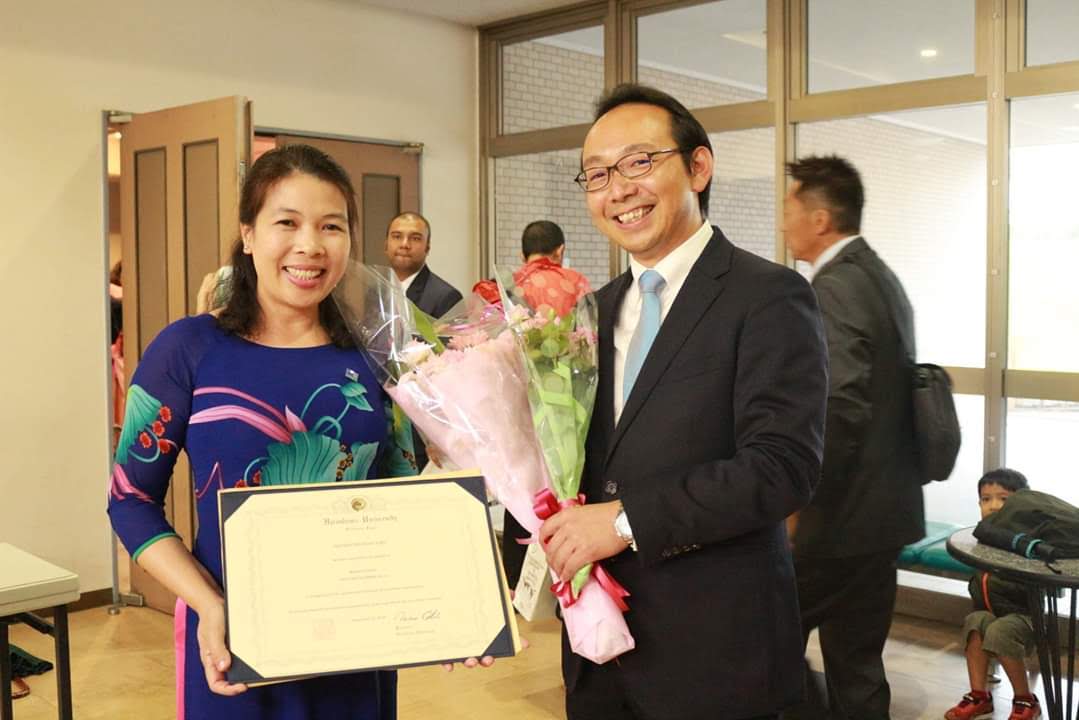
I felt like a child as I secretly tasted the snow. Furthermore, the trips to participating the conference in Tsukuba University and Tokyo University have become unforgetable memmories in my student life. I spent time to experience the long way by bus as well as staying at hostels.
Please tell us your current work. Does what you learned or studied at Hiroshima university help you?
After graduation, I returned to the previous position of Rectorate Board’s secretary, the one I held before attending the study in Japan. In addition, I have just completed the professional training course to upgrade the job-title as the job standard requirement. Furthermore, I participate to conduct a study with CTU’s funding in the perious from June 2020 to May. 5/2021.
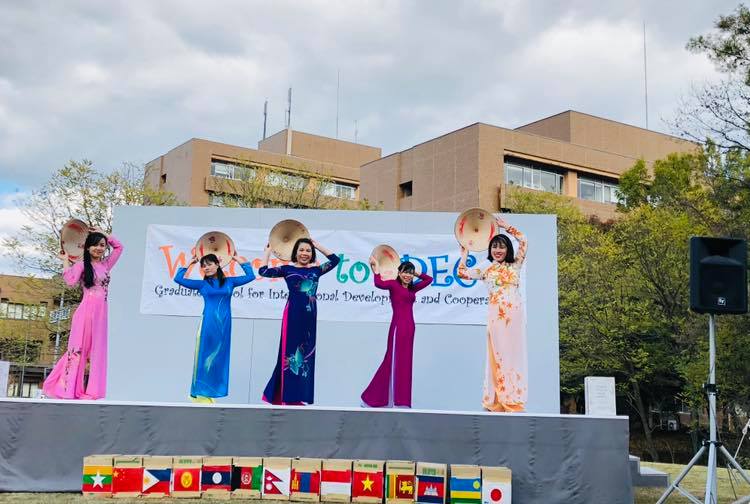
The results will support my pratical management in particular and the university’s training in general.
Do you recommend Hiroshima university for others to choose?
Yes, I did.
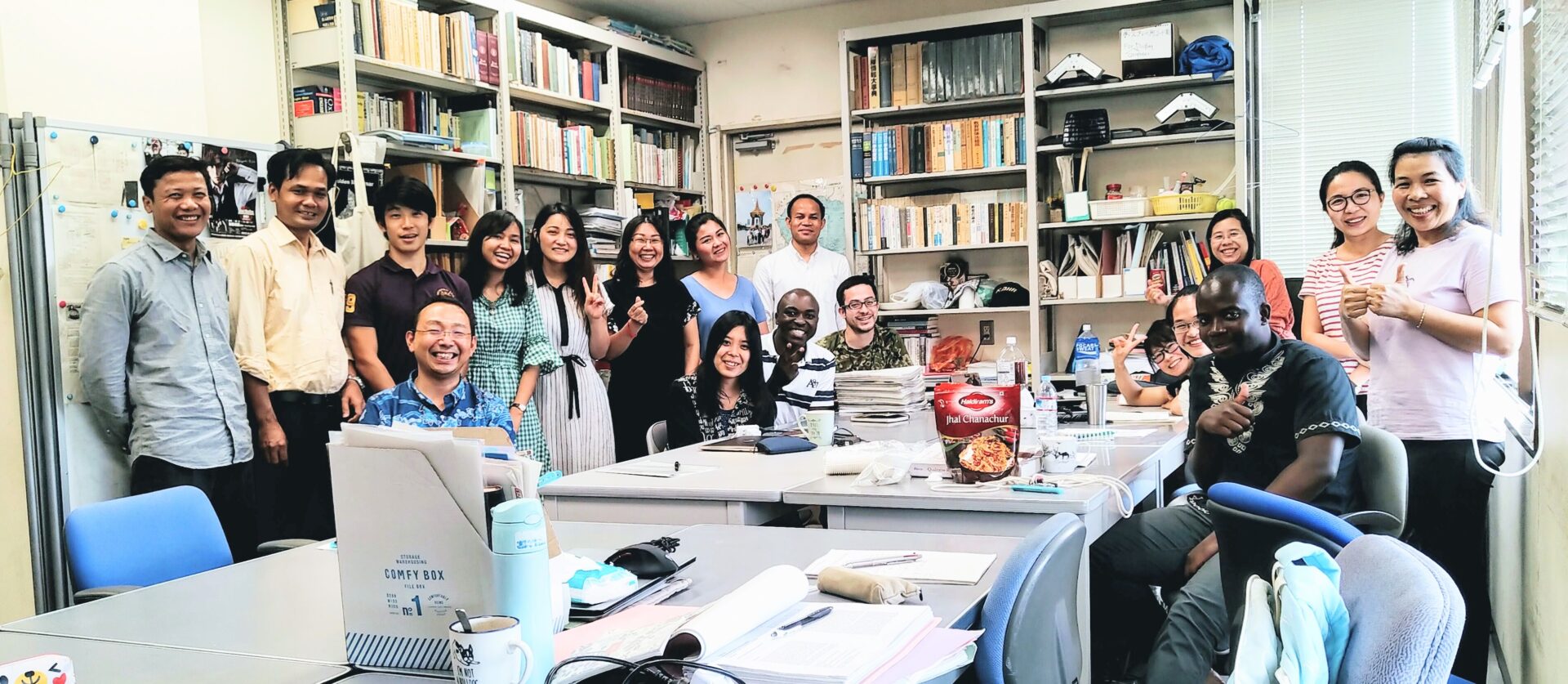
Rasoanjanahary Tantely N.
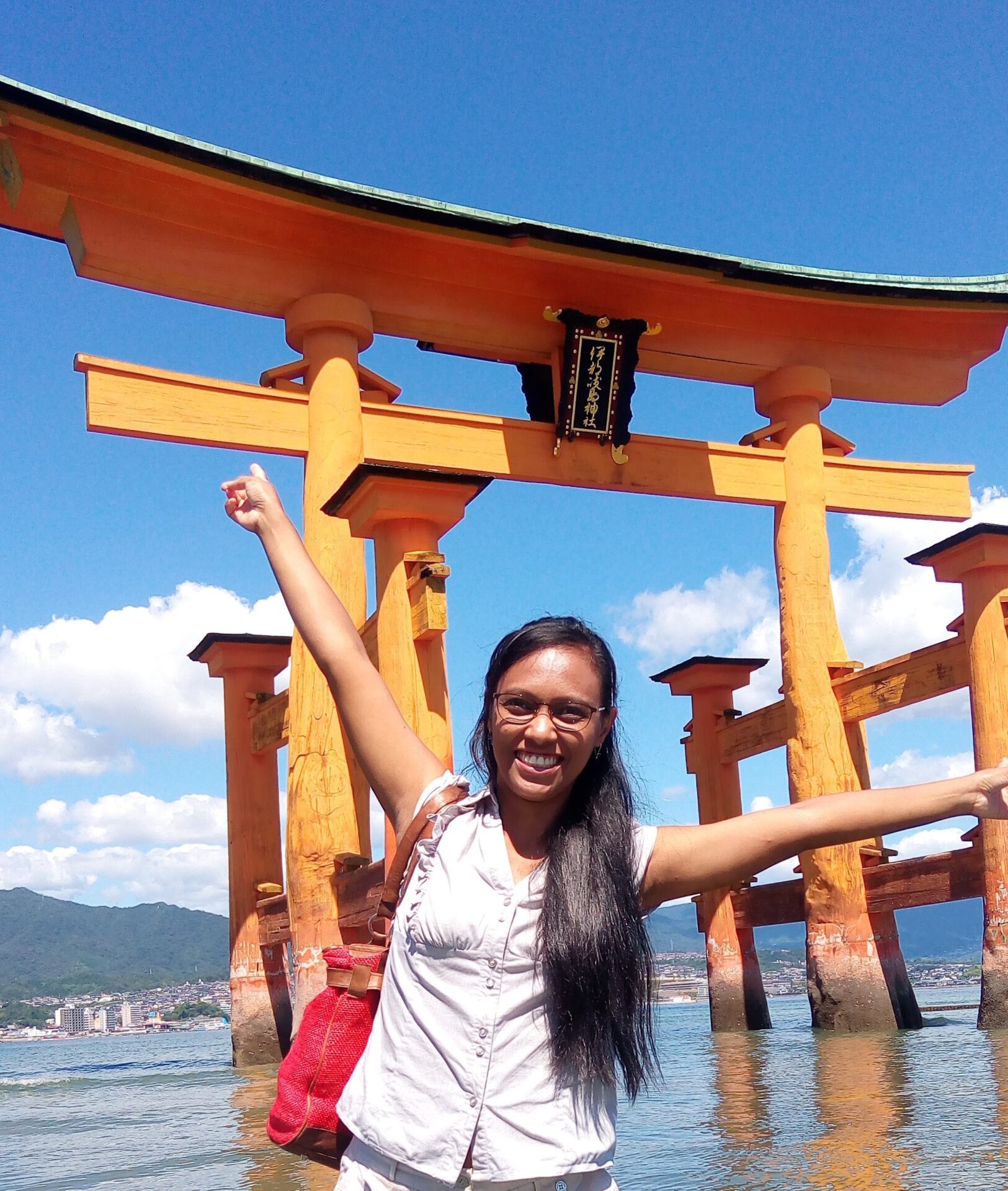 In front of the big Torii Gate of Itsukushima Shrine, one of the three top scenic spot in Japan, Miyajima 2017
In front of the big Torii Gate of Itsukushima Shrine, one of the three top scenic spot in Japan, Miyajima 2017| Name | Rasoanjanahary Tantely N. |
|---|---|
| Country | Madagascar |
| Year / month of graduation | September 2019 |
| Degree obtained | Master’s |
| Position / organization as of March 2021 |
Full-time employee / Satake Corporation |
This article was written in March 2021.
Why did you choose Japan, and Hiroshima university for your study?
Having worked as a language teacher and administration staff at a university in my country, I wanted to deepen my knowledge on education, namely: educational organization leading to students’ learning improvement. I chose Japan to pursue my study because I was always fascinated by how Japanese people behave so harmoniously in society making it strong and resilient despite the natural disasters occurring repeatedly. Precisely, I wanted to know what part of its renowned education system had something to do with its development.
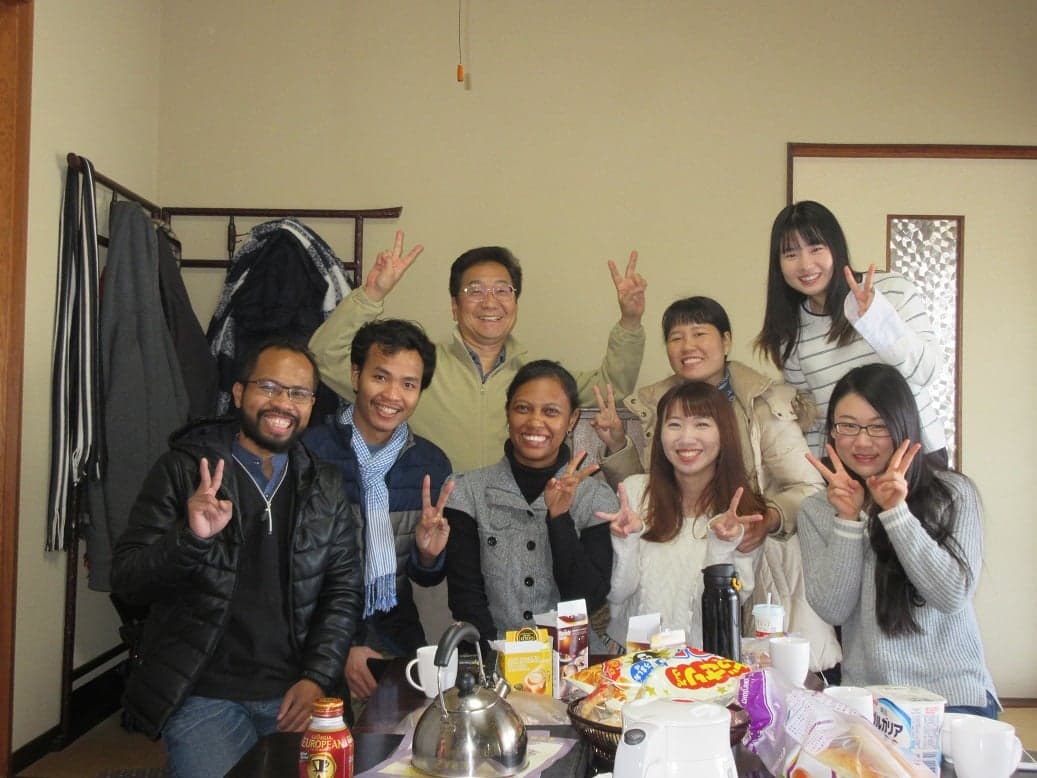 During our 2days retreat seminar on Development of Higher Education with Hotta-sensei, Onomichi 2017
During our 2days retreat seminar on Development of Higher Education with Hotta-sensei, Onomichi 2017After going over different programs, I finally came to know the Education Development Course at Hiroshima University which would allow me to learn about not only education itself but also about international cooperation and development to learn how to bring my learnings from Japan into my country’s education and contribute to its development.
What did you learn and study at Hiroshima university?
We learnt about theories and practices to address educational issues in developing countries in the context of international cooperation. We had the chance to discuss timely and real problems happening in the fields of education as our seminar members were encouraged to conduct fieldwork for their research. As for me, I focused on the improvement of access to higher education in developing countries, particularly in Madagascar, where higher education had been reserved to a very small share of the population. My masters’ thesis was about the study on the factors which affect student’s choice of higher education institutions, from the perspective of distance education learners.
Did you enjoy your stay in Hiroshima?
My stay in Hiroshima was wonderful. Its deeply rooted history dated from the world-war period makes Hiroshima a very charming place. I could attend the Hiroshima Peace Memorial Ceremony with guests from African Sahel countries. I am happy that I could help them as a translator, in their training organized by the Center for International Cooperation in Education to learn about building resilient communities through youth education.
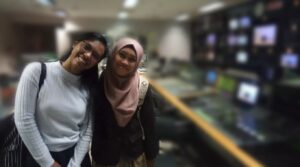 During our site visit at the Open University of Japan, to learn about Japanese distance education, Chiba 2018
During our site visit at the Open University of Japan, to learn about Japanese distance education, Chiba 2018Also, one of the three best tourism spots in Japan is located in Itsukushima, Hiroshima, a world-heritage with beautiful landscape scenery. I always enjoy each of my visits there.
Please tell us your current work. Does what you learned or studied at Hiroshima university help you?
Currently, I am working for Satake Corporation, a manufacturer for integrated rice milling plants located in Higashihiroshima. I am now in charge of designing flour milling plants for our overseas customers. With the travel restrictions due to Covid-19, I am dealing with our group companies remotely to design and help with the construction of our customers’ milling plants. One of the most useful learnings I got from Hiroshima University is the ability to work in an international environment with a global mindset. We were trained to cope with global issues, but at the same time, we were required to understand the local context to be able to provide the best fitting policies for the targeted area and country, according to their economic development and most importantly their local culture, which now I use here in Satake when designing our products to our customers.
Do you recommend Hiroshima university for others to choose?
Hiroshima University has very resourceful researchers and professors working in international settings. From my experience, the support and help from my academic advisor, Professor Yoko Ishida, was the core pillar which contributed to my enjoyment in achieving my masters’ studies. So yes I do recommend Hiroshima University for students seeking for a unique, academic and practical university experience, which must be useful for their future.
Sharmin Hena

Roaming around the Hiroshima city, Hiroshima Peace Memorial Park
| Name | Sharmin Hena |
|---|---|
| Country | Bangladesh |
| Year / month of graduation | September 2020 |
| Degree obtained | Master of Education |
| Position / organization as of March 2021 |
Instructor (General), Ministry of Primary and Mass Education |
This article was written in March 2021.
Why did you choose Japan, and Hiroshima university for your study?
The first reason to choose Japan for my higher study is the well-facilitated education system and good learning environment. Besides, I found the MEXT scholarship to cover my educational expenses and daily necessities in Japan, although it is recognized as one of the world’s most expensive countries. I choose Hiroshima university because I found my prospective supervisor according to my interest in education there. Moreover, my husband was in the same institution and doing his Ph.D. at my application time.
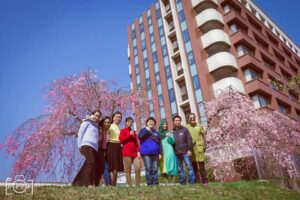
Hanami Party 2019, Backyard of IDEC, Hiroshima University
I acquired the motivation to pursue my Master of Education from Hiroshima University after screening the curriculum and multitasking education policy, especially the field visit. I obtained real motivation from my supervisor after a skype conversation with her about my research. Finally, I found Japan as the safest place for women with children for themselves and their children.
What did you learn and study at Hiroshima university?
In the Master’s program at Hiroshima University, my major focus was on Early Childhood Care and Education (ECCE). In this journey, I have learned about different theories and practices of ECCE in the global context. Also, I have worked as an assistant at the ‘JICA Knowledge Co-creation Training Course on Early Childhood Development (ECD)- 2020’, which enhances my knowledge about ECD practices in Japan. I have enrolled in different courses where I have learned about research methods in education.
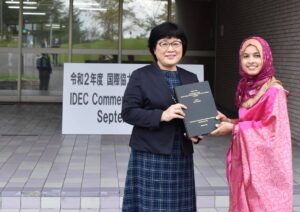
Submission of Master thesis to my main academic advisor MIWA Chiaki (Associate Professor, Hiroshima University), Hiroshima University Hall
Besides this, I have experienced a way to develop a project proposal for an international organization. Moreover, I have worked as a teaching assistant at the ‘History of Japanese Educational Development’ course.
In my research, I have focused on exploring the characteristics of teaching-learning practices of mathematics for the pre-primary level students by parents and teachers in Bangladesh at home and preschool. The second focus of my study was to explore the practices related to students’ better understanding of number concepts. My research title was “Developing Number Concepts: Teaching-Learning Practices of Pre-primary Students at Home and Preschool in Bangladesh.”
Did you enjoy your stay in Hiroshima?
I enjoyed my stay period and passed quality time in Hiroshima. It is the best memory of my life until today. Among the huge experiences I have gathered, I can explain IDEC open day’s celebration in 2019 as my best experience during my study at Hiroshima university. I was a member of the Bangladesh team, and our team performed a fashion show considering Bangladeshi culture. We cooked traditional food and served it to people from different nations of the world. It was a great opportunity for me to enjoy the cultural diversity from the performance of different teams.
Please tell us your current work. Does what you learned or studied at Hiroshima university help you?
I am a teacher trainer (Position: Instructor-General) under the Ministry of Primary and Mass Education in Bangladesh. In my job, I usually teach Mathematics-Pedagogical Knowledge for Diploma in Primary Education (DPEd) course. I also conduct different short courses on Information and Communication Technology (ICT) and a contemporary new teaching-learning method at the pre-primary and primary level. Those short and long courses assist those teachers in developing their professional knowledge and experience. The DPEd course is required to facilitate action research, case study, and lesson study. I need to teach them different kinds of teaching-learning theories.
I have learned about research and lesson study, and different theories on ECCE. Yes, those kinds of learning help me to support my country’s teachers for their professional development. The teaching method I have experienced from the different professors and associate professors of Hiroshima University helped me improve my teaching manner. My supervisor Miwa Chiaki’s professional custom, taught me many things to improve my communication and academic skills. I can apply those styles to improve those teachers’ professional customs.
Moreover, the “History of Japanese Educational Development” course was a great source to learn about developing Japan’s education system even after world war ii. We, the people of Bangladesh, should follow this to improve our education system, especially for teacher recruitment, teacher education, and develop our country’s next generation’s morale.
Besides, I have learned the etiquette and manner from professors and other office staff, which is very common for Japanese people. I always try to practice punctuality, politeness, honesty, kindness to other in my daily life. I would like to share all of my experiences with my family members, colleagues, and other subordinates.
Do you recommend Hiroshima university for others to choose?
I want to recommend Hiroshima university as one of the finest destinations for higher education to my colleagues and friends. At first, it provides a friendly learning environment to students according to their needs and interest. Secondly, the courses offered by the university are updated, and there is an opportunity of choice. Thirdly, the staff from the student support office were very helpful. Finally, I found my supervisor, sub-supervisor, and other teaching staff kind enough and easily accessible for any consultation. Therefore, it could be the best choice of higher study for every student worldwide, especially one who wants to study on education.
TITIK ULFATUN
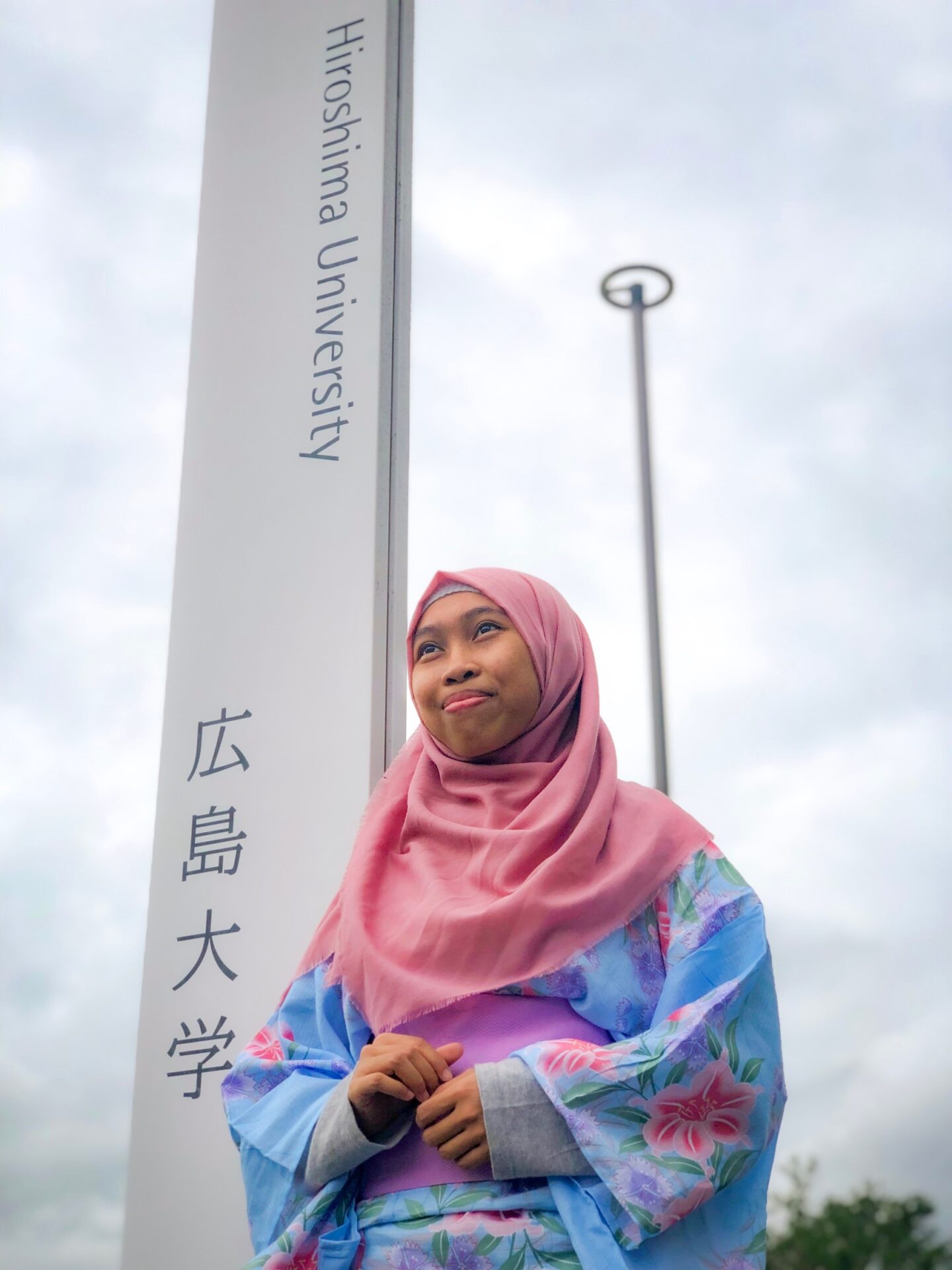
Posing before enjoying Yukata Matsuri at Hiroshima University (June 2019)
| Name | TITIK ULFATUN |
|---|---|
| Country | INDONESIA |
| Year / month of graduation | September 2019 |
| Degree obtained | M.Ed. |
| Position / organization as of March 2021 |
Lecturer / UNIVERSITAS MUHAMMADIYAH SURAKARTA |
This article was written in March 2021.
Why did you choose Japan, and Hiroshima university for your study?
Japan is one of my dream countries. I remember when I was in my first year of undergraduate studies, my professor played a video about one of the Indonesian students who was successfully pursuing his dream of studying in Japan. It greatly motivated and inspired me. Since then, I have told myself that one day I would be able to fulfill my dream of studying in Japan, which I did five years later in 2017.
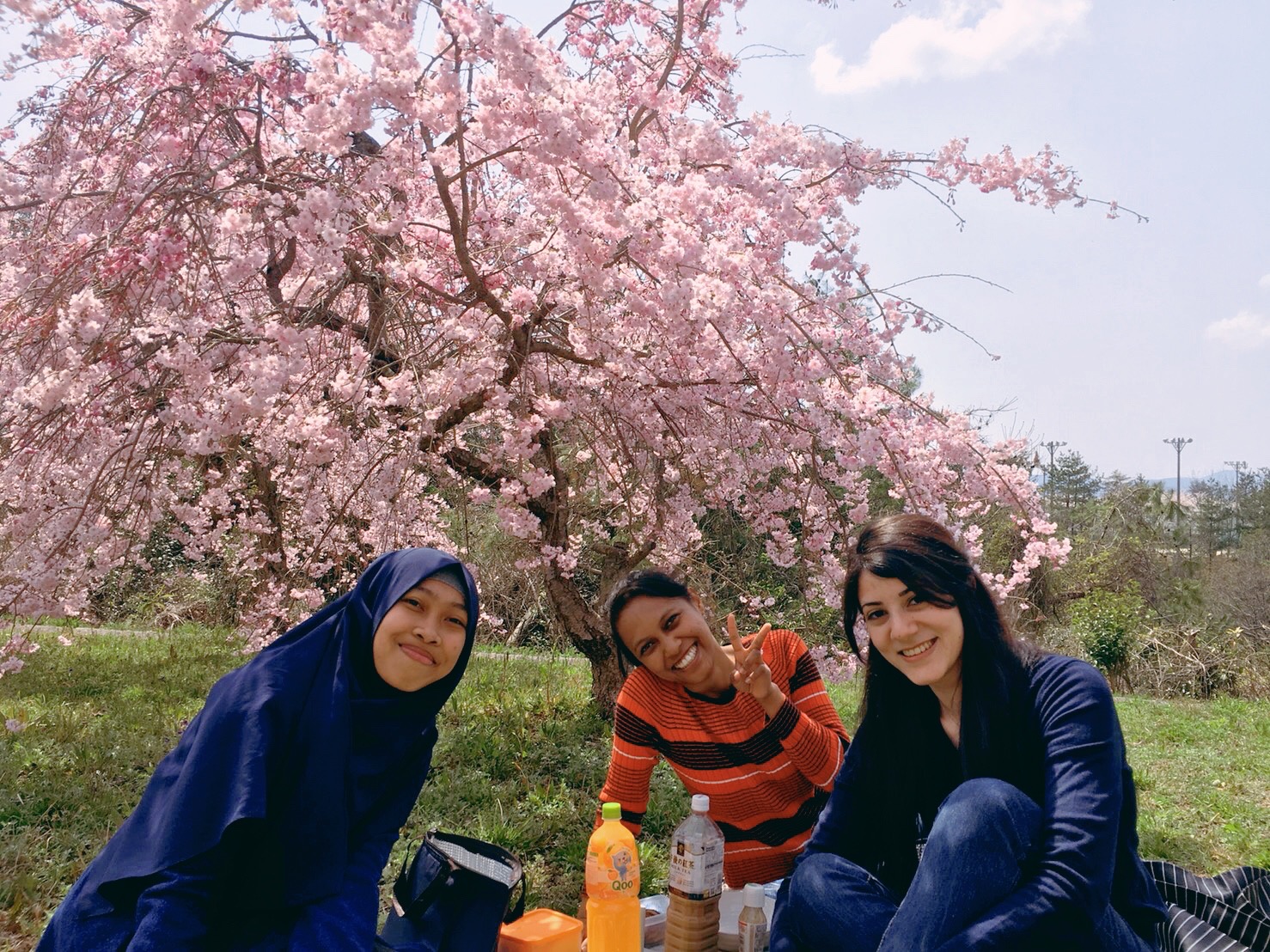
Enjoying Hanami with labmates near the IDEC building (April 2018)
It was not only because of my dream but also because of my passion for education. It would be a great chance for me to take an educational program in a country with one of the world’s best-performing education systems. Hiroshima University, as one of Japan’s leading universities in education, gave me that wonderful opportunity by providing the course available in English since I could not speak Japanese.
What did you learn and study at Hiroshima university?
I enrolled as a student in the Educational Development Course, Graduate School for International Development and Cooperation (IDEC) in 2017-2019 under the supervision of Prof. Yoko Ishida. During my two years studies, I gained many experiences and learned both academic and non-academic things. I studied such as International Cooperation in Education, Project Evaluation Methodology in Education Development, Basic Education and Development, Foundations of Education, Human Resource Development for Education, Curriculum and Instruction, and some courses related to Educational Research. The new thing I experienced was the zemi (seminar). These weekly meeting classes with labmates and sensei were so helpful yet quite challenging for me. We could discuss our research progress and get constructive comments. Through the zemi, I could improve my critical thinking and research skills. My research focused on teacher certification and competency, especially for vocational high school teachers. It was a quantitative study that examined the relationship between those two variables. Aside from what I learned in the course, I also learned Japanese. It was so exciting to study Japanese together with other international students. Studying at Hiroshima University also has reminded me to value many things, such as togetherness, respect, hard work, perseverance, teamwork, and peace.
Did you enjoy your stay in Hiroshima?
Living and studying in Hiroshima has been the best gift that I have ever had in my life. I had a great time in Hiroshima. Its beautiful nature and amazing culture make me fall in love with this city. Hiroshima offers a supportive environment for students to study and for people to live, including foreign people. Hiroshima also provides Muslim-friendly facilities. I could buy halal groceries at halal shops and eat halal food at restaurants. There are prayer rooms at some public places. Also, there is Hiroshima Islamic Culture Center. I cannot choose which one is the best experience. All of my memories from Hiroshima are the best for me. However, the time I spent with friends studying, traveling, and even going grocery shopping on a bicycle together will live on in my memories forever.
Please tell us your current work. Does what you learned or studied at Hiroshima university help you?
I am a lecturer in the Accounting Education Department of the Faculty of Teacher Training and Education at Universitas Muhammadiyah Surakarta. It is a great honor for me to join one of Indonesia’s top Islamic private universities. This is also my dream work since my passion is related to education. I was a teacher before in the Accounting study program at a vocational high school and my current job is to prepare students to become Accounting teachers in the future.
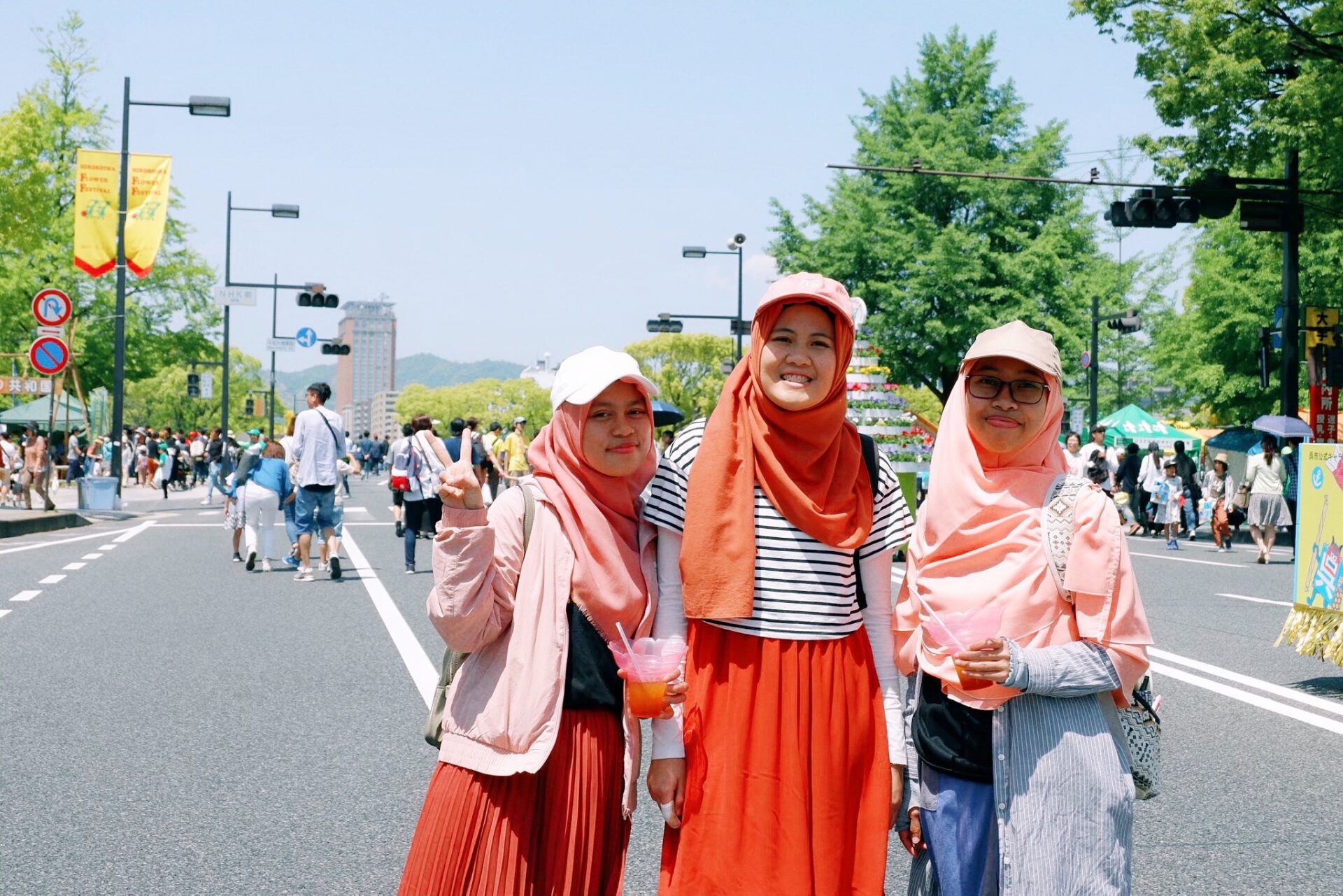
Enjoying Hiroshima Flower Festival with friends at Peace Boulevard (May 2019)
I teach both the educational course and the accounting course here. It has been slightly busy these recent months. The even semester of the academic year 2020/2021 begins in March. Many things need to be well organized for the learning since we hold the class online. Online learning is believed as one of the best solutions for higher education institutions to hold their courses in the midst of pandemic Covid-19. Aside from teaching, I also conduct research, write articles for journals, and do community service. Studying at Hiroshima University has helped me to do what I am working on right now. I can apply and share the lessons that I learned and the insights that I gained during my master’s program with my students here. Besides, I am trying to implement the zemi model for my final-year students. I hope they can learn and discuss together in this zemi model about research because they have to complete the undergraduate thesis. Through Hiroshima University, I can expand my network with colleagues from other countries. In the next few months, my faculty will have a special guest lecturer from a colleague who was my former labmate at Hiroshima University. He will give the course on Educational Management. After all, thanks to Hiroshima University that helped me become the person I am today.
Do you recommend Hiroshima university for others to choose?
It will be a great opportunity for people to study at Hiroshima University. I had worries related to living and studying abroad. Hence, before I came to Hiroshima, I asked Indonesian students about their lives and studies in Hiroshima. Their positive responses erased my worries. I was struggling at first because I had to adapt to a new place. However, it was getting better day by day. Surrounding by beautiful nature, Hiroshima University is so peaceful and comfortable for studying. They provide facilities and activities that support students. As a Muslim, I am thankful that Hiroshima University has prayer rooms and also serves halal food in the cafeterias. Last but not the least, the professors and friends were so helpful. They are so kind-hearted, friendly, and respectful of each other regardless of where we are from.
Tang Bin
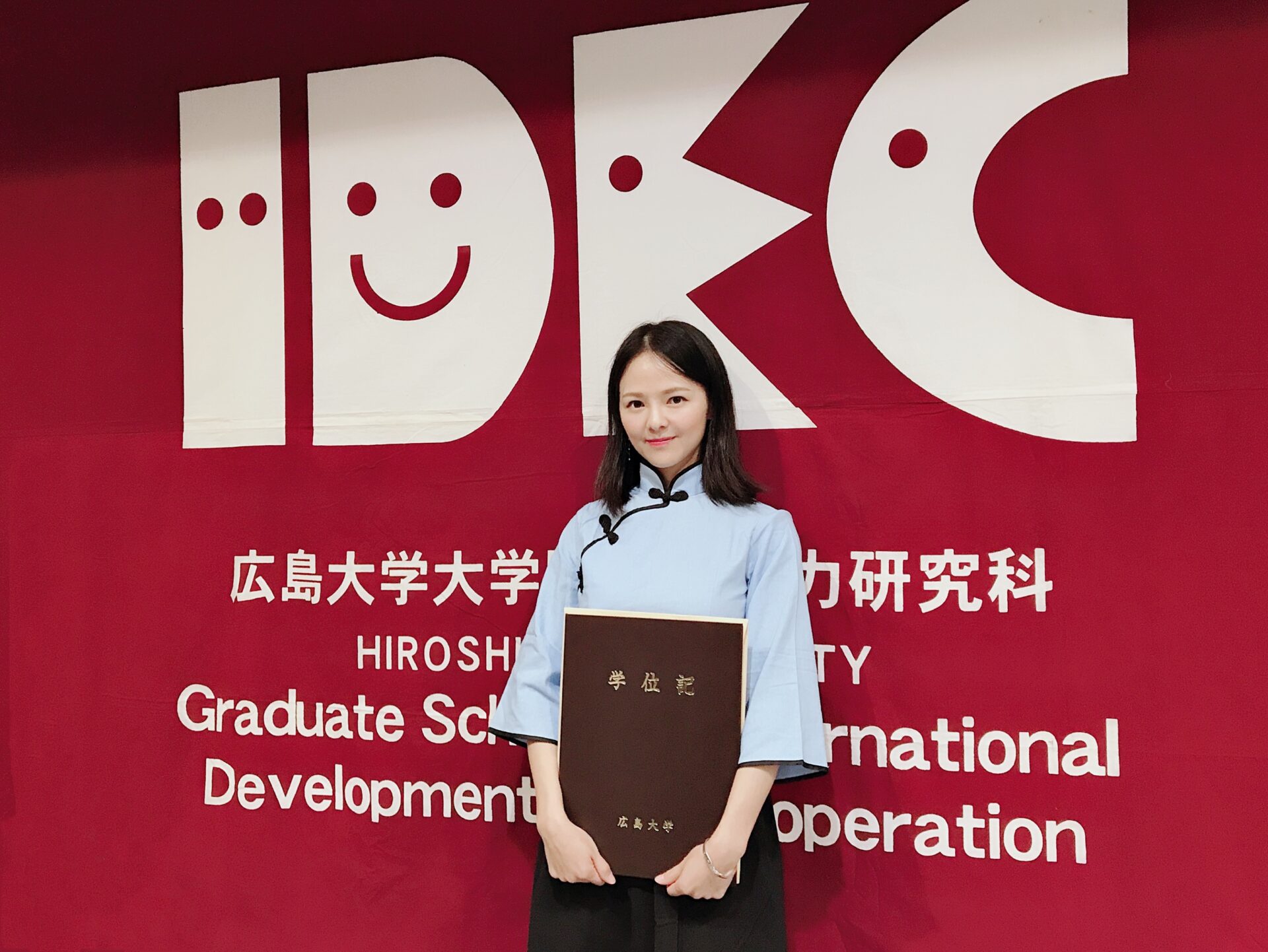
| Name | Tang Bin |
|---|---|
| Country | China |
| Year / month of graduation | September 2019 |
| Degree obtained | Doctor of Philosophy |
| Position / organization as of March 2021 |
Lecturer / Beihang University |
This article was written in March 2021.
Why did you choose Japan, and Hiroshima university for your study?
I chose Japan for my study for I major in Japanese linguistics. My dream is to be a Japanese teacher in a university. Learning in a Japanese-speaking environment can significantly elevate my language skills, which is an exclusive requirement for a qualified teacher. The best way to study a second language is to be involved in the places where we can intensively learn the language. Therefore, I decided to study abroad at Hiroshima University (HU). When I traveled to Hiroshima several years ago, I thought it’s an excellent place for its calm and relaxed atmosphere is good for focusing on my study. Also, HU is a comprehensive university and provides us with lots of convenience to engage in our research.
What did you learn and study at Hiroshima university?
I learned a higher proficiency of my research skills from my supervisor and became fluent in Japanese. For example, I mastered how to analyze a corpus to find the disciplinary tendency of learners’ errors and then use the theory of contrastive linguistics to explore the errors. My doctoral dissertation was centered on the topic of Chinese-Japanese learners’ misuse of conjunction words. I aimed to discuss how and why Chinese-Japanese learners misused Japanese conjunctions. I also expected to find a better method to teach Japanese grammar to students who study Japanese as a second language in China. Through the three-year experiences of studying in Japan, I found more differences between Chinese and Japanese languages. I learned how Japanese people use the conjunction words by interacting with them and learned vivid Japanese by experiencing Japanese culture.
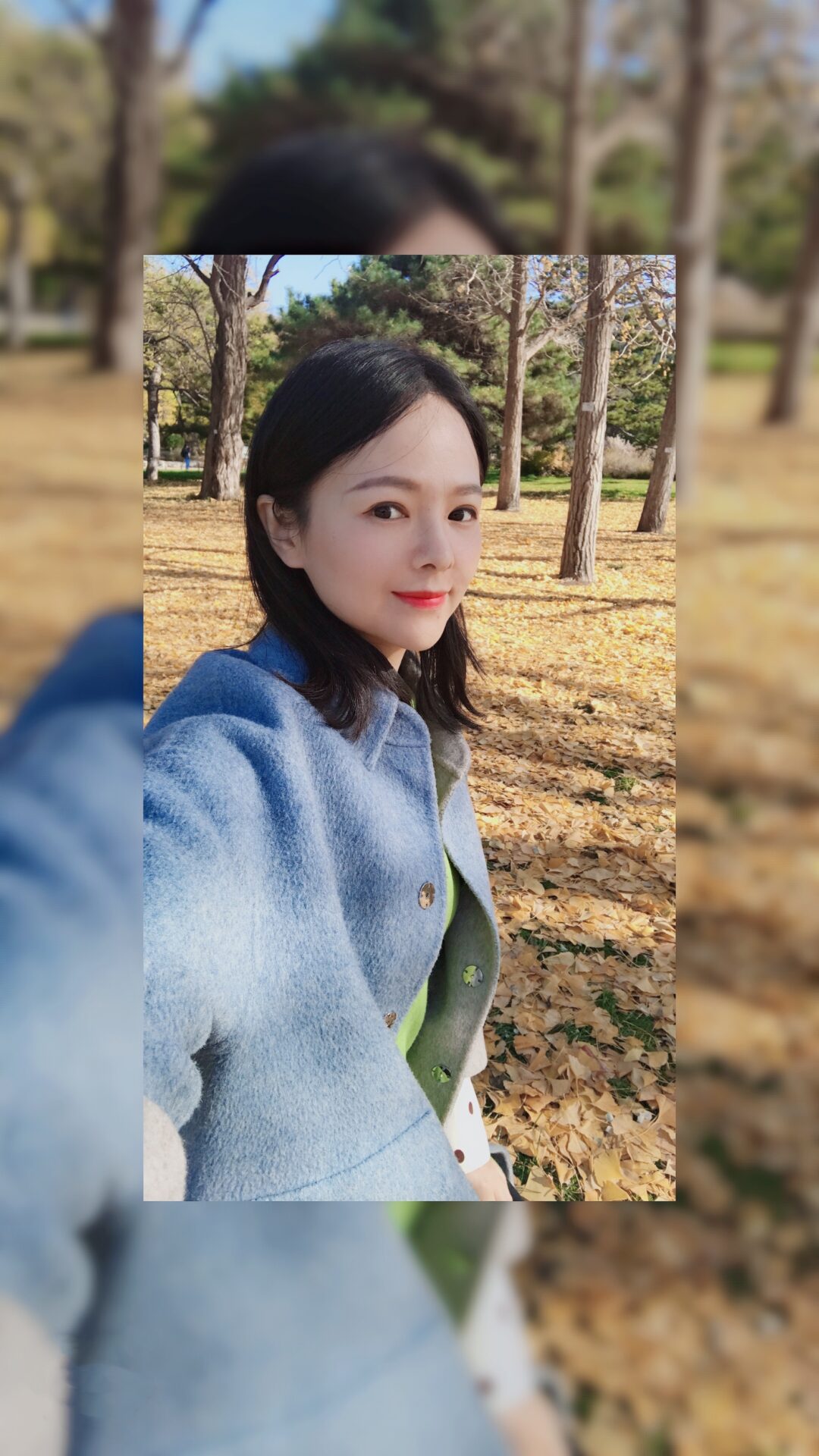
What I learned in my daily life could considerably help me with conducting my research. For example, it surprised me when my Japanese friends always used “それに(soreni)” to talk with me, for previously, I had thought it was a conjunction word used exclusively in the written language. If I had not communicated with Japanese people in my daily life, I would not have known such a natural language phenomenon.
Did you enjoy your stay in Hiroshima?
My most unforgettable memory in Hiroshima is that a car accident made me helpless in my second year at HU. Although it was compulsory, the driver never escaped but helped me in kind ways, such as calling the police and ambulance immediately. At the same time, my supervisor and my graduate school staff gave me full support for the subsequent insurance. There were some serious troubles when I dealt with the insurance company. However, my supervisor and the staff arranged meetings with the company to fight for my rights. My colleagues in the same students’ room took turns to drive me home and bring meals for me every day. I realized that I was in a big family and I was not on my own.
Please tell us your current work. Does what you learned or studied at Hiroshima university help you?
I am a lecturer at Beihang University and teach the Japanese language. What I learned at HU helped me become a good teacher. In my teaching, my dissertation’s findings are so contributive that my students learn the grammatical differences between Japanese and Chinese languages that cause grammatical errors. In my Ph.D. dissertation, I researched Japanese-Chinese grammatical differences that can lead Chinese students to misuse Japanese grammar when learning Japanese. I try to introduce a better way to teach Japanese as a second language to Chinese learners. I was also impressed with the attitude of the teachers who treat every student with love.
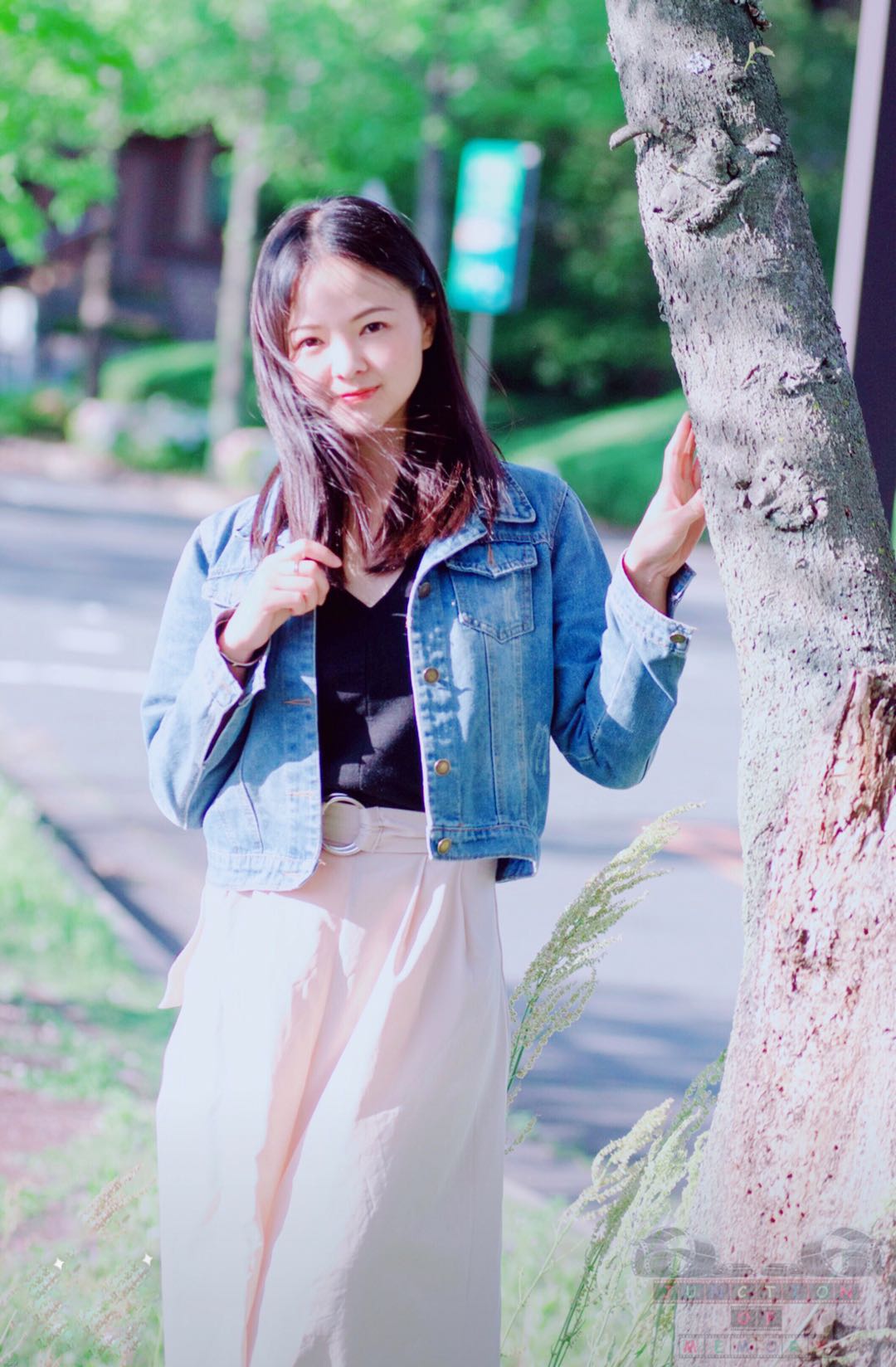
For teachers, it is most important to find effective ways to encourage each student to engage in their learning through our support. Interacting with Japanese teachers was one of the great learning experiences for me. Now, I also do my best to be a good teacher like these teachers I met at HU. Additionally, I learned how to teach the Japanese language to international learners who are beginners of Japanese. Chinese teachers, influenced by their native language, may unconsciously teach Japanese in Chinese ways of thinking. What I learned from Japanese teachers can be very helpful when teaching Japanese in my work.
Do you recommend Hiroshima university for others to choose?
HU is the most suitable place to study. We can get many books necessary for our study in HU libraries. There are five libraries in HU; especially there are three main libraries at the Higashihiroshima campus where I studied. Besides, the teachers there are knowledgeable and approachable, and your thirst for knowledge will be surely satisfied. HU is also a beautiful place to live. The cherry blossoms flying in the sky in spring and the brilliant maple leaves in autumn will become the scenery you don’t want to miss. Why don’t you come to Hiroshima University and start your journey of discovery from here?
